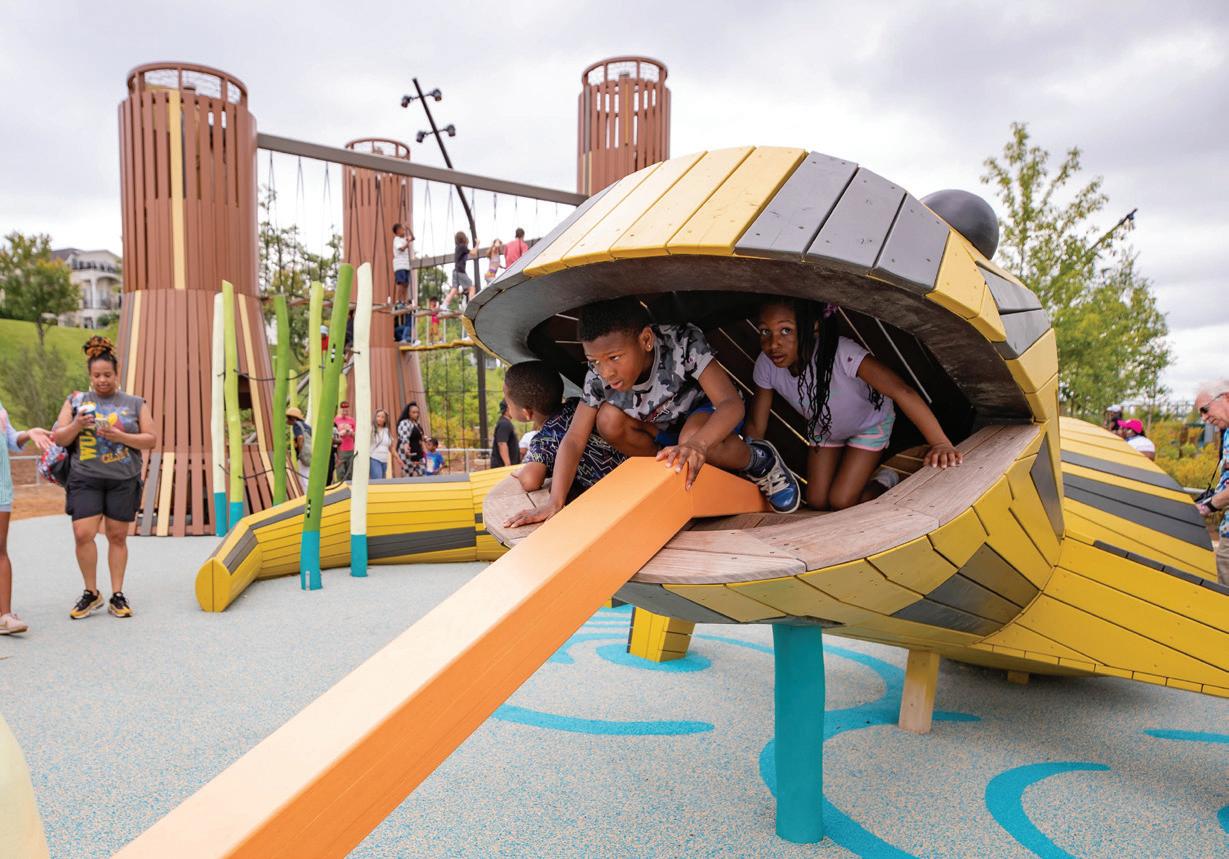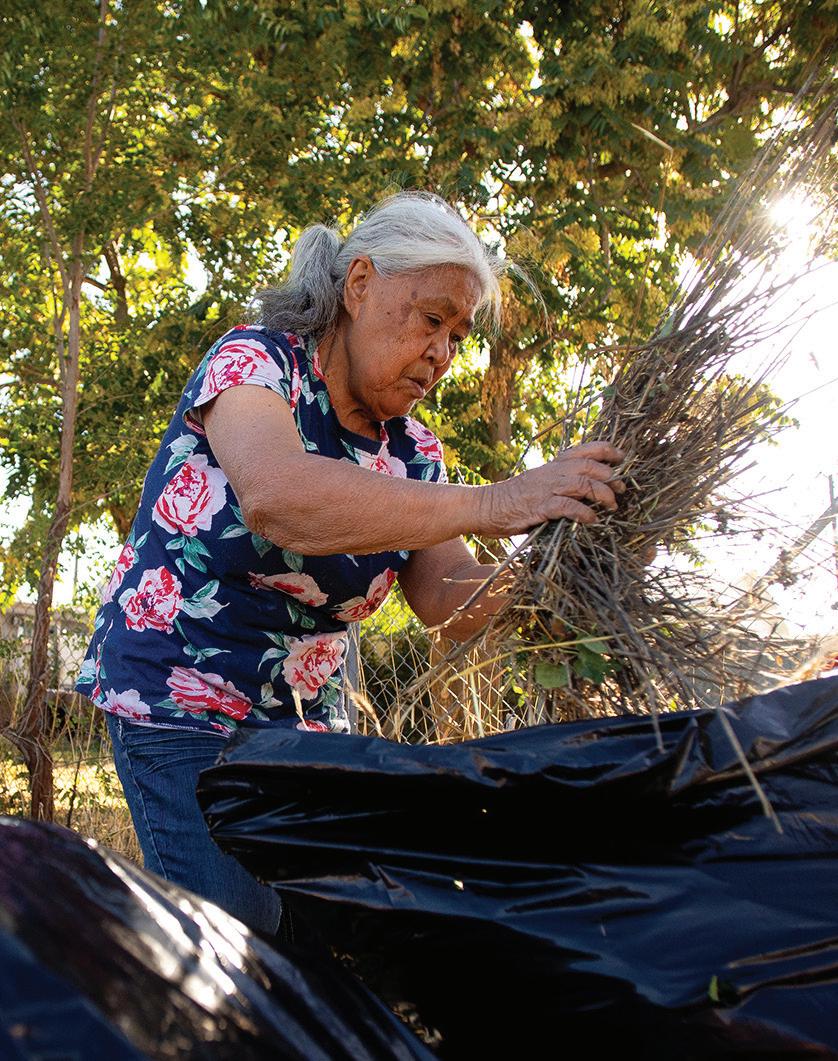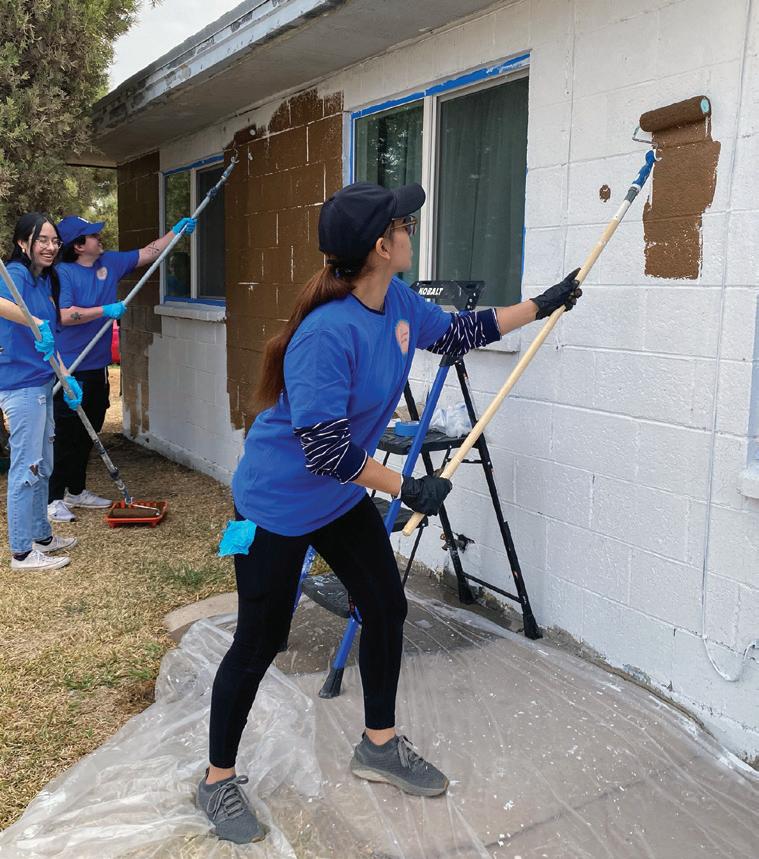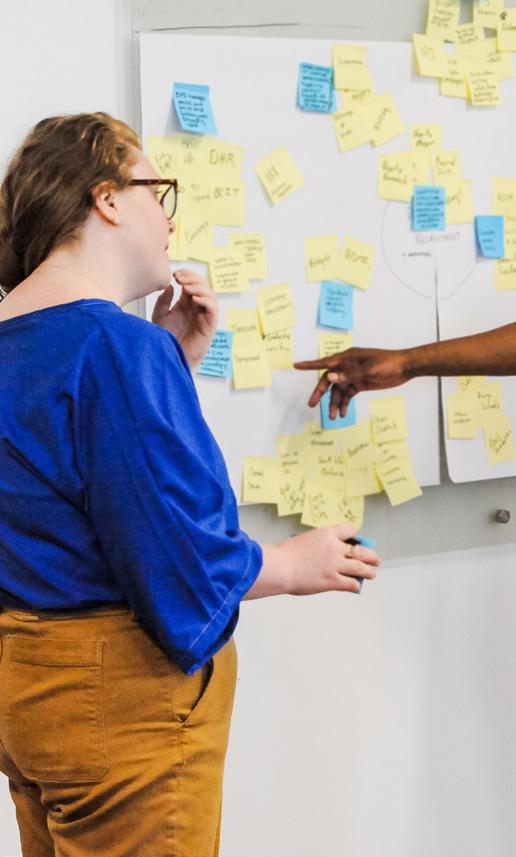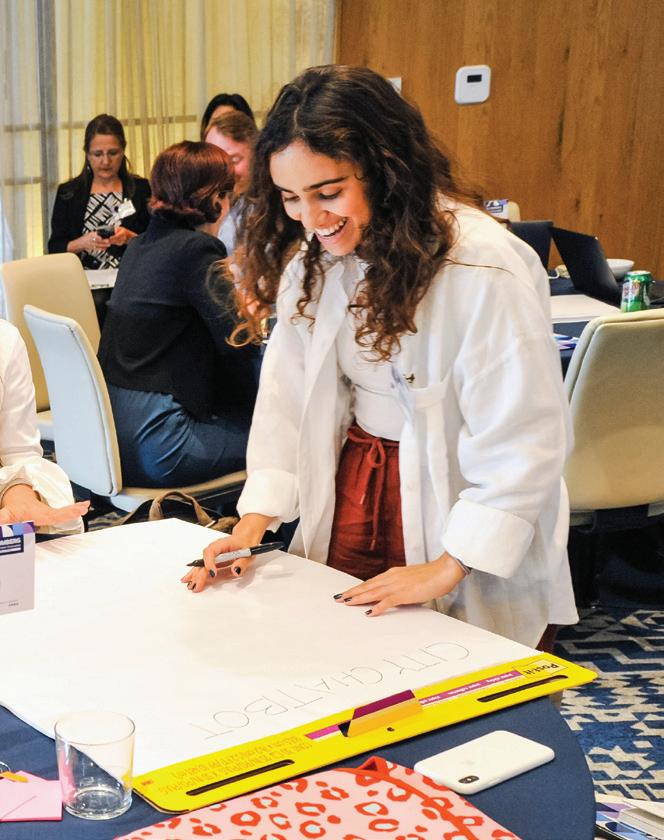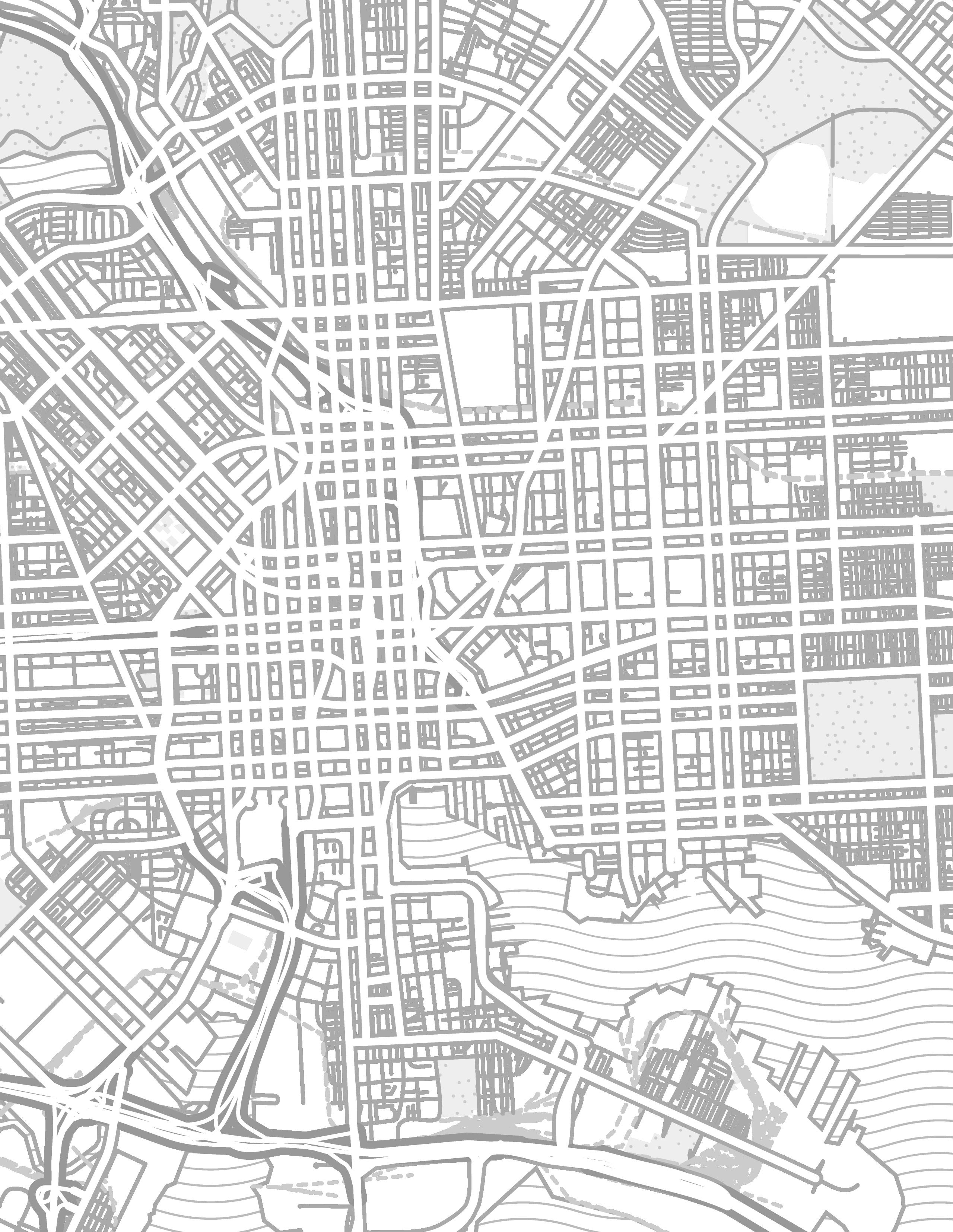Impact Highlights 2023-2024
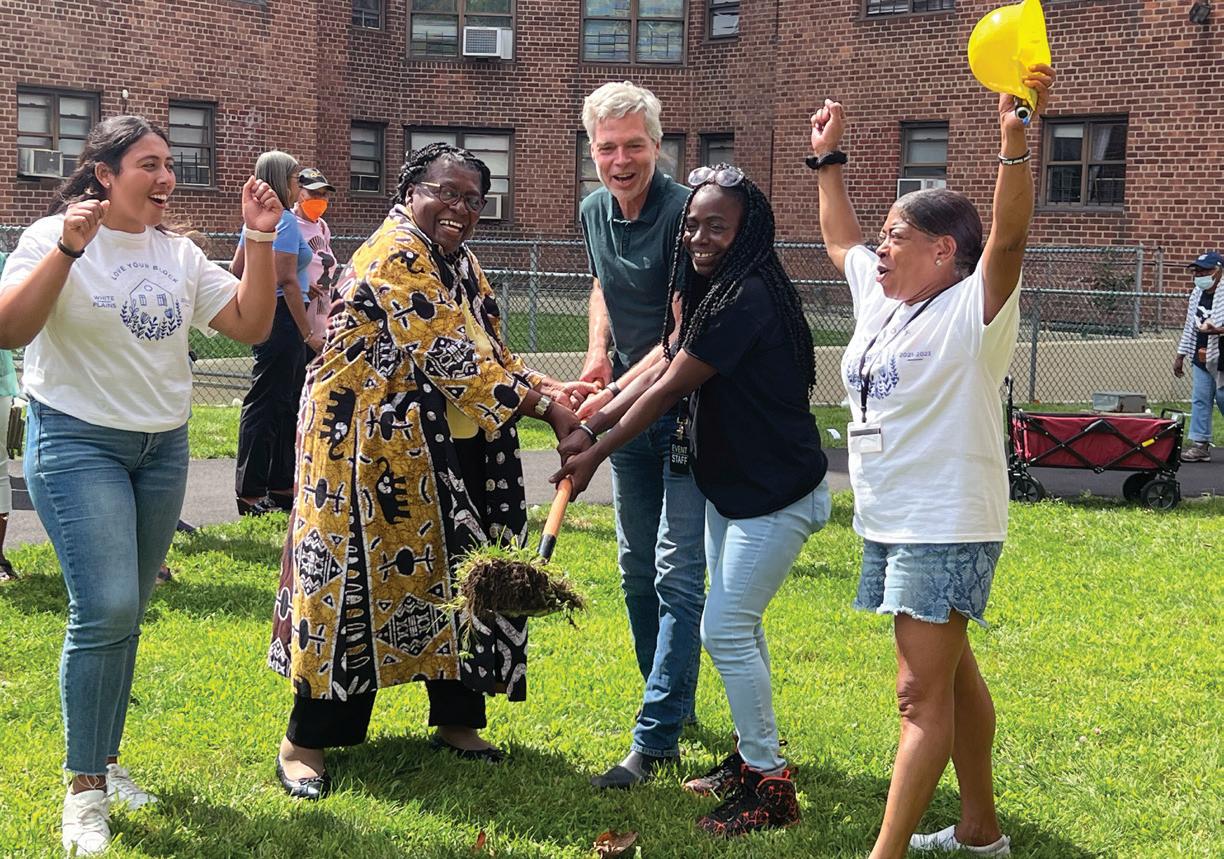
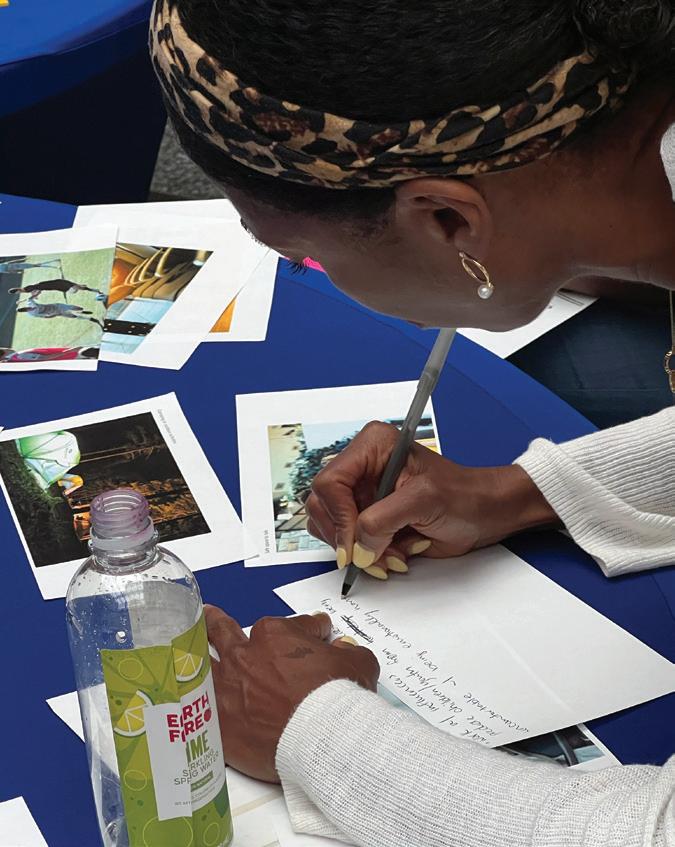
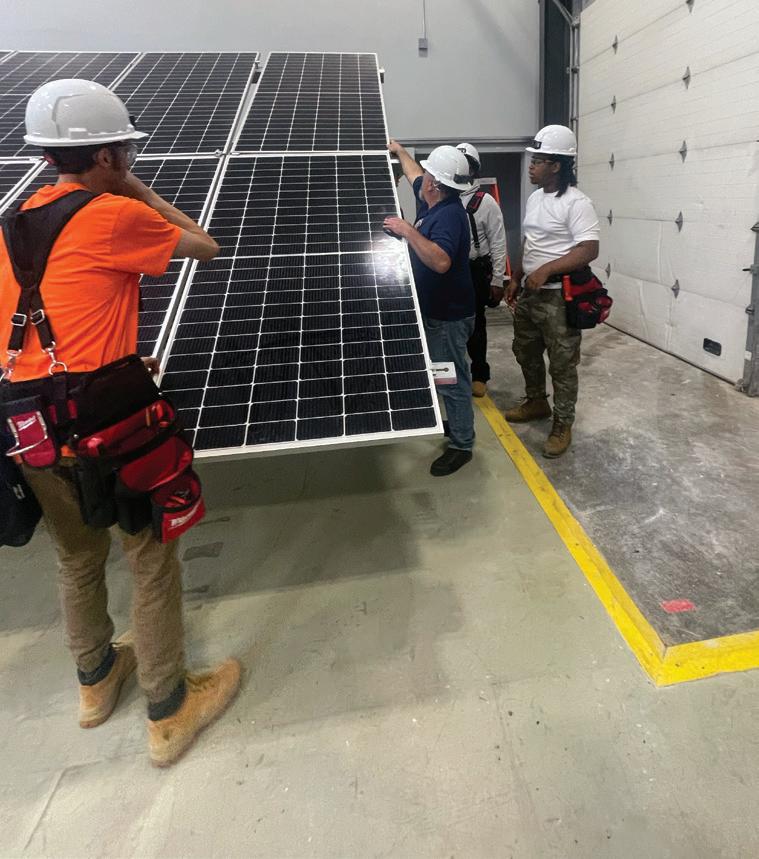
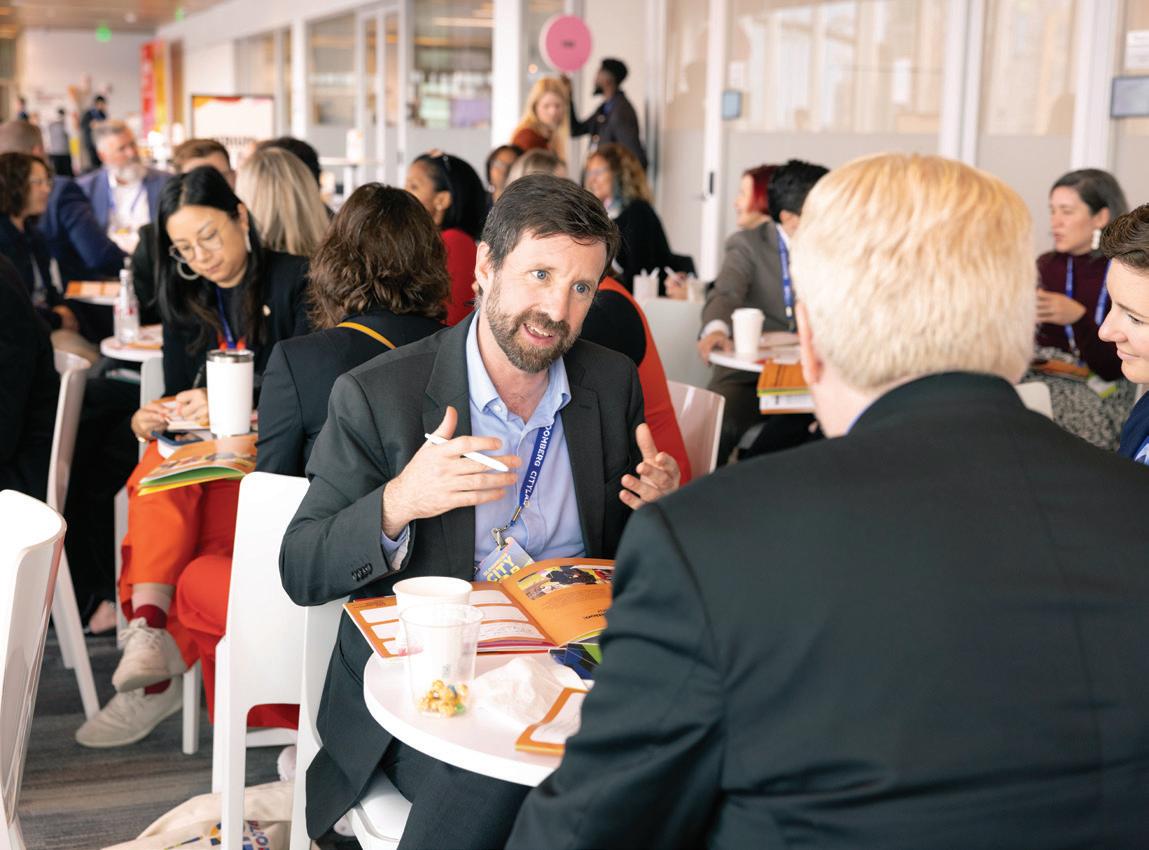
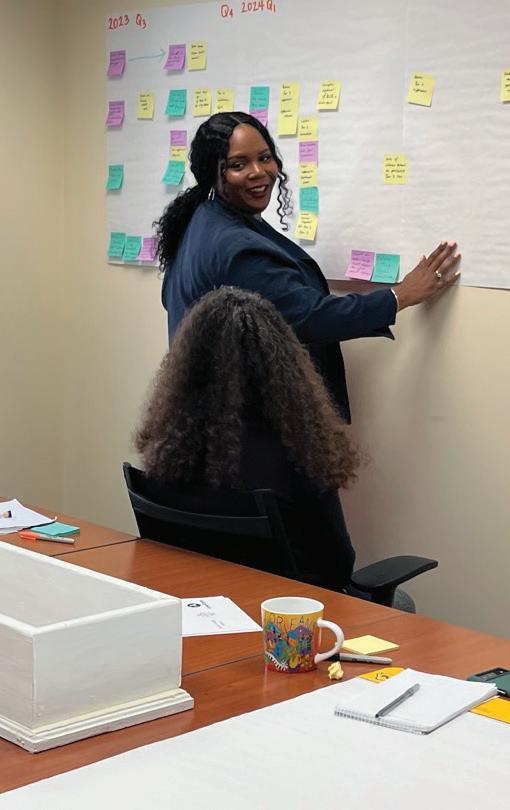
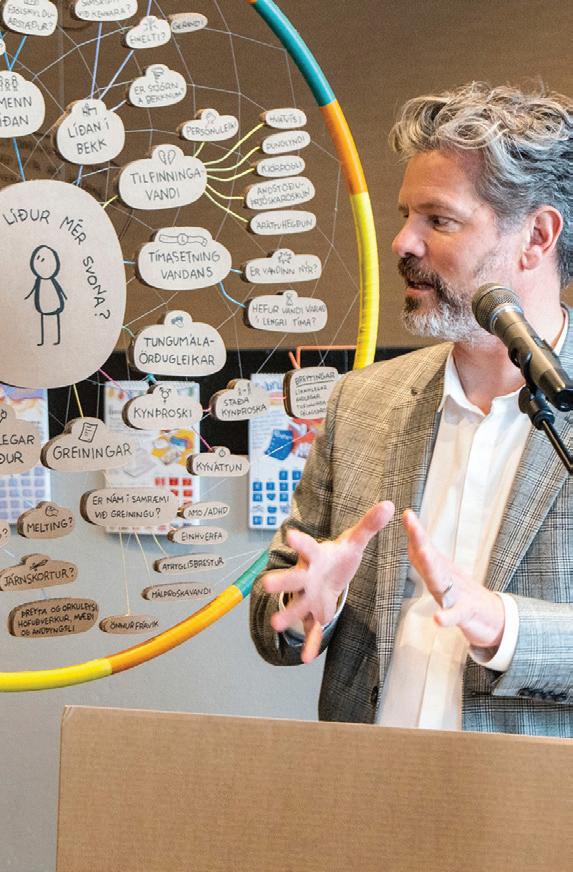

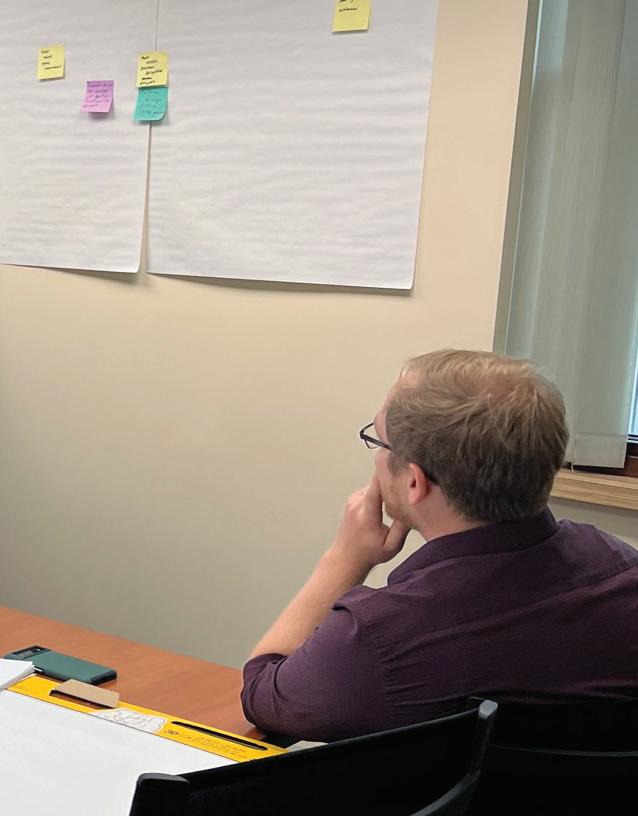
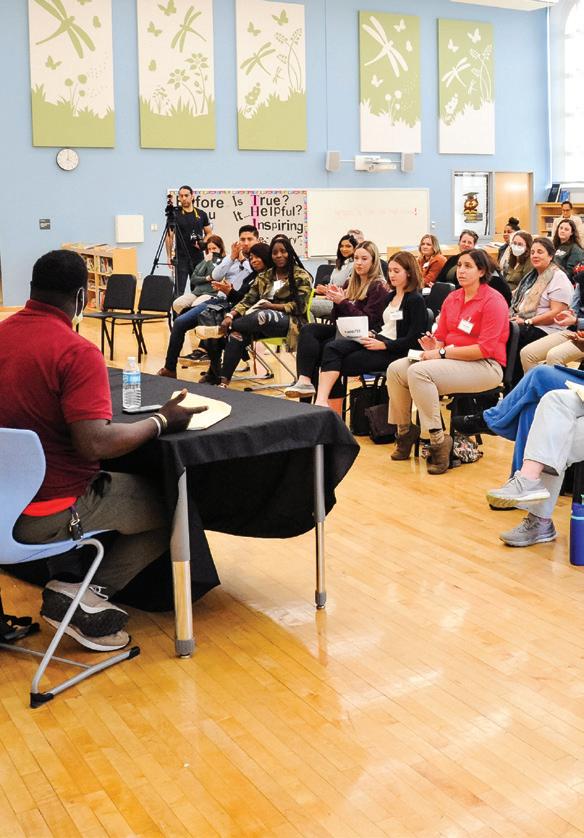
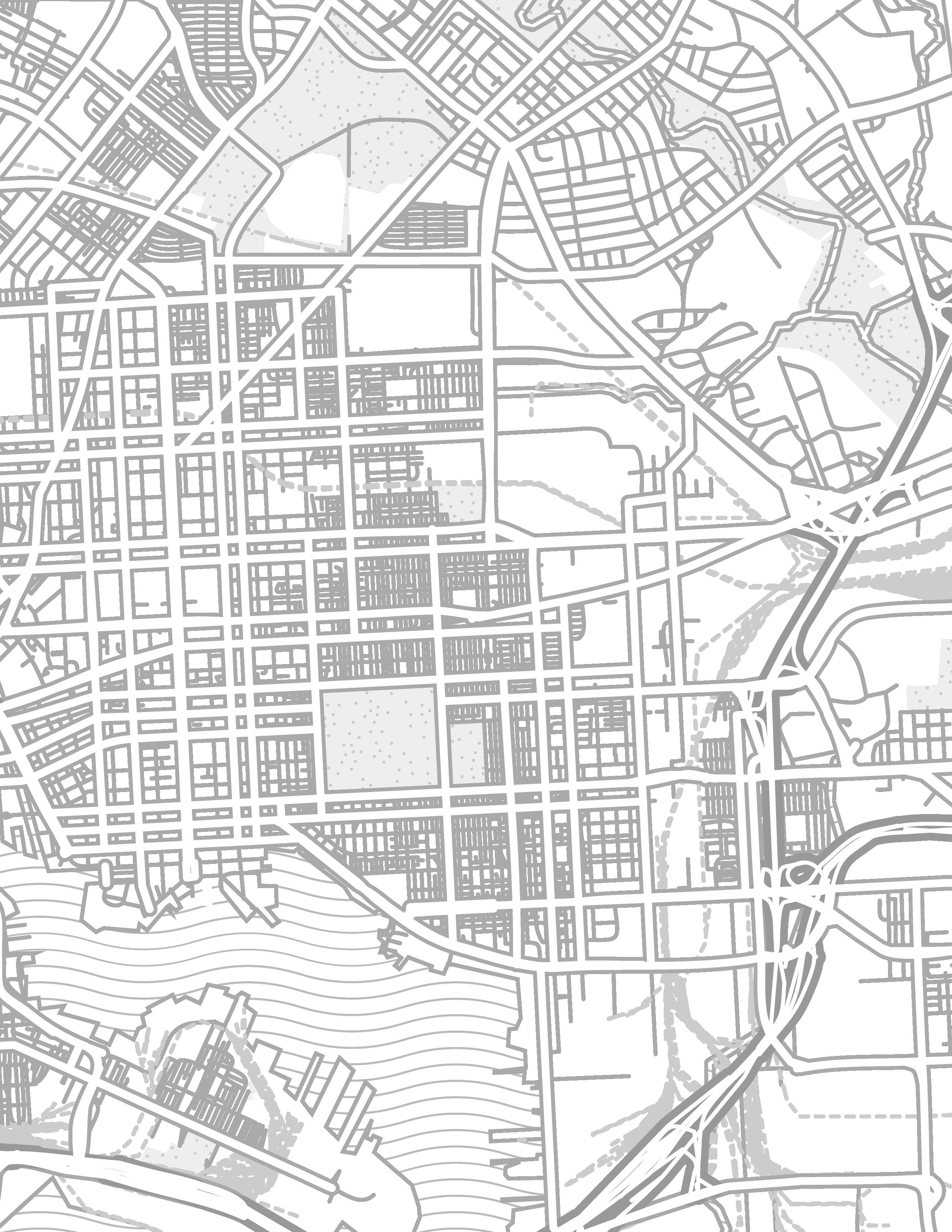

Impact Highlights 2023-2024











Dear Friends and Partners:
I am continually inspired by the transformative power of innovation to improve resident lives through the landscape of city government and pub lic service.
At the Bloomberg Center for Public Innovation at Johns Hopkins, we believe innovation advances cities. Uniting method and mindset, public innovation empowers cities to upend the status quo and tackle challenges with confidence and clarity. Public innovation brings city leaders and residents together in an established process to identify a problem or opportunity, bring data and context to the issue through rigorous research and comprehensive resident engagement, prototype solutions, and iterate continuously, all leading to improved outcomes.
Our Center was established to give cohesion to these kinds of efforts in cities around the world, and to strengthen the methods of effective public innovation. Since the Center’s founding in 2021, our comprehensive approach to investing in cities – which includes grants, leadership training, innovation methodology training, and technical support – has equipped more than 200 cities with the essential tools and established processes needed to innovate effectively. This report highlights examples of this transformative work – everything from improving student services to sparking resident-led neighborhood revitalization to increasing the efficiency of procurement processes, and much m ore.
In supporting this work in cities around the world, the Center has democratized access to public innovation methods. Our recent launches, which include the Bloomberg American Sustainable Cities program, the Youth Climate Action Fund, the expansion of the Love Your Block program to 16 U.S. cities, and the establishment of Innovation Teams in the State of Maryland, the City of Baltimore, and New York City, have collectively brought more than 100 new cities into our network in just one year, each using innovation as the key difference maker for urgent challenges and opportunities.
Globally, more cities than ever employ public innovation methodology and learn from each other in the process, which helps grow the field and enhance the impact it has on residents. And, with support from the Center through several new programs that address issues such as climate change and wealth equity, cities are using public innovation methods to confront the world’s biggest challenges.
The Center’s mission to improve resident lives through public innovation will receive an additional boost in the coming years through the new Johns Hopkins University School of Government and Policy. This school at the Johns Hopkins University Bloomberg Center in Washington, DC will serve as a practical academic platform for practitioners, supported by a world-class institution in Johns Hopkins that can drive impact at scale and with excellence. The Center will play a pivotal role in shaping a modern public administration curriculum and ensuring that the next generation of leaders is equipped with the knowledge and skills needed to sustain, grow, and evolve public innovation in cities.
We are proud of the impactful work of the world’s creative and ambitious cities, excited about the future of the field, and grateful for your continued support as we work together to build better cities and improve lives through the power of public innovation.
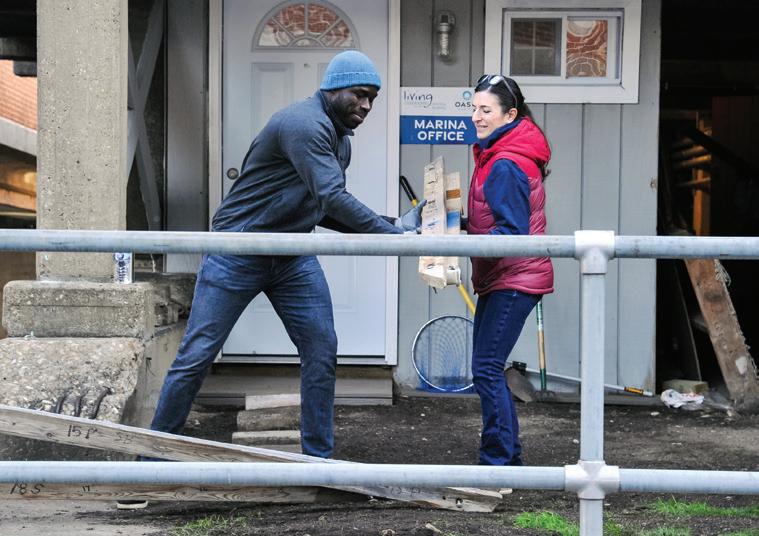
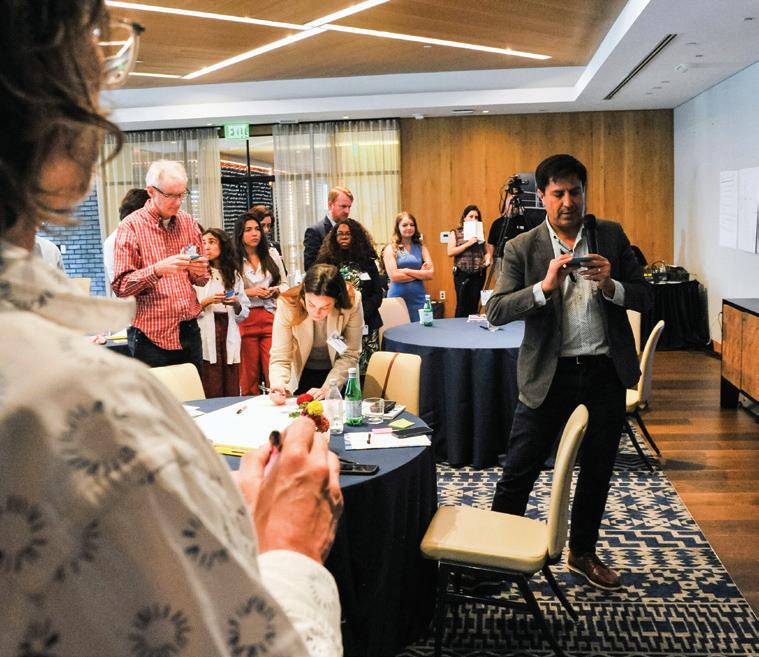
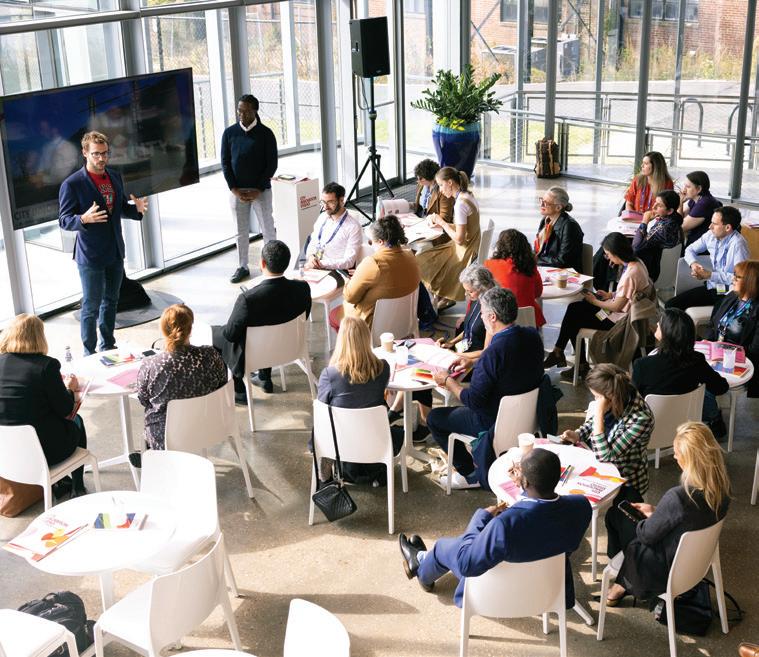
With gratitude,

AMANDA DAFLOS Executive Director

Since the Center’s founding in 2021, we have supported:
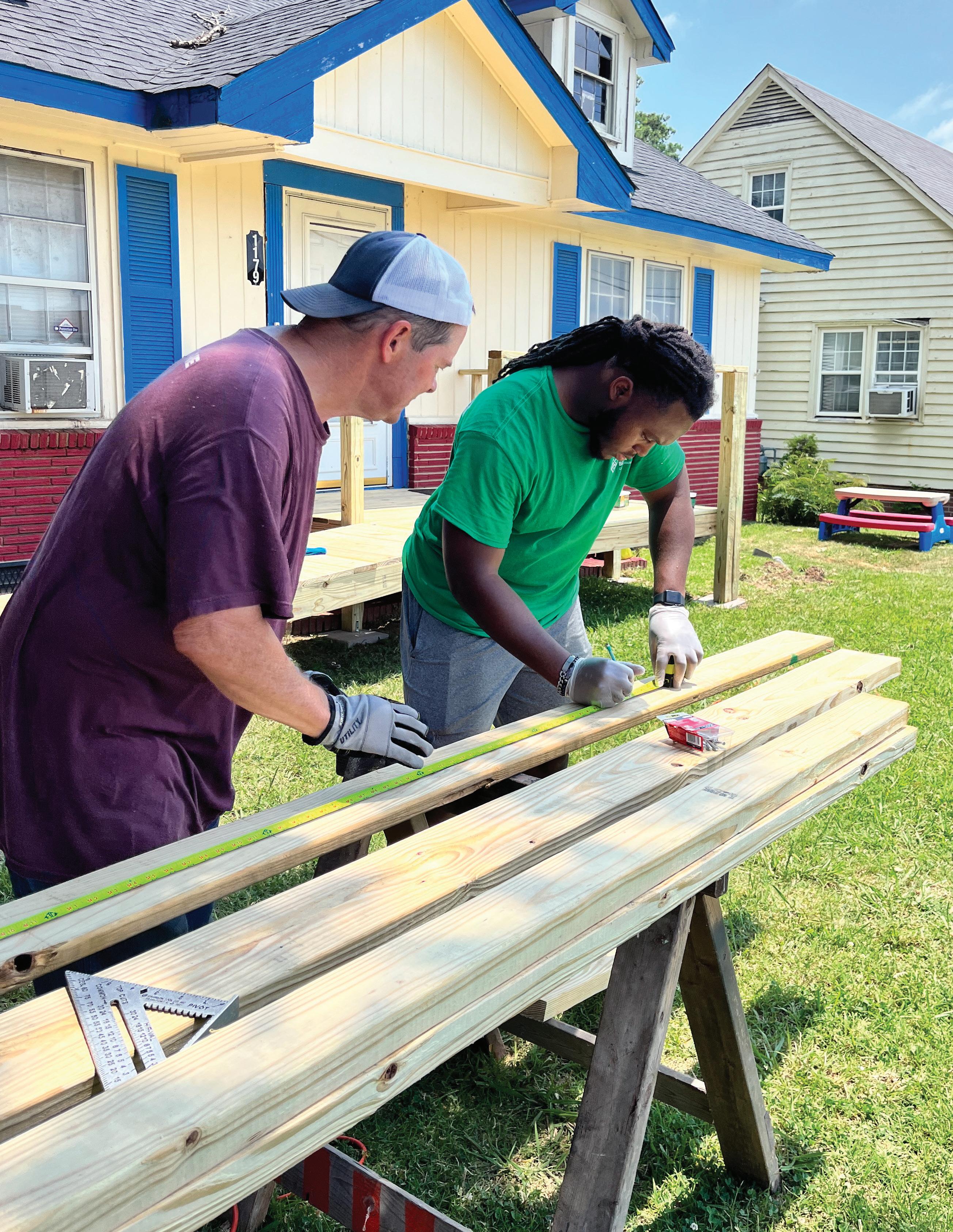
Jurisdictions
44 Countries in
Cities with Innovation Teams (i-teams)
The forces of creativity and ambition have helped transform the lives of millions of residents under the powerful government innovation work ignited by Bloomberg Philanthropies in 2006.
The Center’s founding in 2021 provided a powerful catalyst for creativity and ambition in cities that has steadily expanded in the nearly three years since. From that beginning, we are proud to now support more than 200 jurisdictions in 44 countries through training, grants, technical assistance, coaching, and dedicated personnel that create and implement life-changing public innovations for city residents. In 36 cities with Innovations Teams (i-teams), nearly 100 cities participating in the Youth Climate Action Fund, and 16 cities currently activating resident-led change through Love Your Block, the Center’s committed support for creativity and ambition
drives public innovation by championing resident voices, promoting data-driven decisionmaking, and embracing human-centered design principles, improving people’s quality of life and experiences.
These impact highlights are a small snapshot of the innovation work the Center supports in cities today. We believe these stories of cities, leaders, and programs that have ignited transformative impact for residents hold the power to inform and inspire cities and their leaders to join in the public innovation movement and create meaningful change for people.
Founded in 2021, the Bloomberg Center for Public Innovation at Johns Hopkins University drives innovation in local government by marrying cutting-edge practice with world-class research. Together with public servants and government innovators around the world, we are transforming the culture of government, delivering exceptional results for residents, and deepening trust in public service worldwide.
EMBEDDED STAFF
TOOLS & TRAINING CAPACITY BUILDING
2024 programs include:
Bloomberg American
Sustainable Cities
Leveraging innovation methods to advance climate resiliency and racial wealth equity in 25 U.S. cities
Bloomberg Public Innovation Fellowship
Translating knowledge of senior government officials into leading-edge research, practice, and policy
Innovation Teams (i-teams)
Building knowledge, skills, and capacity in human-centered design, data analysis, and innovation methodology to test new solutions and produce better outcomes for residents
Innovation Training
Applying innovation methods to generate solutions and scale impact
Love Your Block
Fostering collaboration between city hall and community residents to address local public problems with volunteer-fueled projects
Local Infrastructure Hub
Empowering cities through civic engagement training and federal funding success
Public Innovators Network &
Bloomberg Cities Network Hub
Connecting global city leaders to resources and each other
Summer Scholars
Creating the future of the public sector workforce by engaging students in learning opportunities with global mayors and senior city hall executives
Youth Climate Action Fund
Empowering global youth to drive climate solutions in their city

“Our most innovative ideas are the [students’] ideas. We will owe HBCU Public Service Program’s success to them, our most influential and innovative partners.”
–
Marie Lachance Service Designer Washington, DC, USA
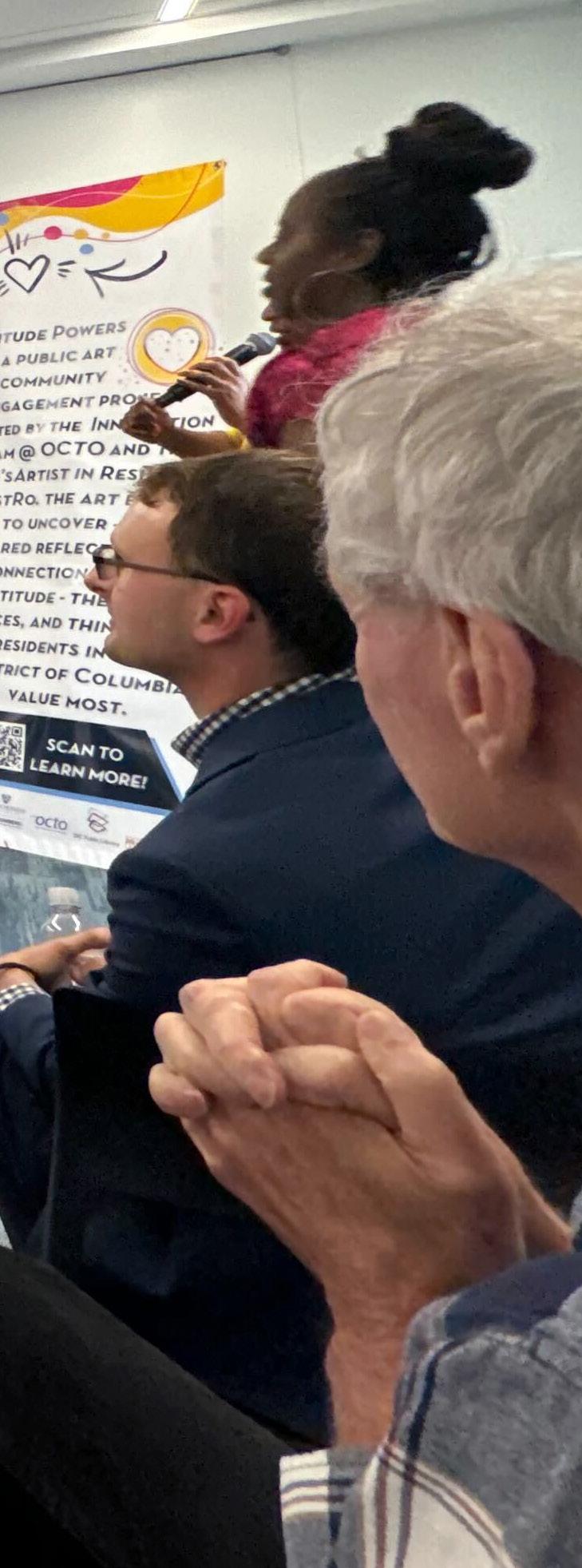
The transformative energy harnessed by listening to, valuing, and actively engaging residents is reshaping government solutions and igniting public innovation initiatives in cities worldwide.
As the field of public innovation grows and evolves to meet an ever-growing range of challenges, the core value of prioritizing resident voice remains a steadfast commitment that drives positive impact both within government and beyond city halls.
By prioritizing resident expertise, city leaders tailor prototypes and generate solutions, resulting in public innovations that effectively address community needs and create positive change.

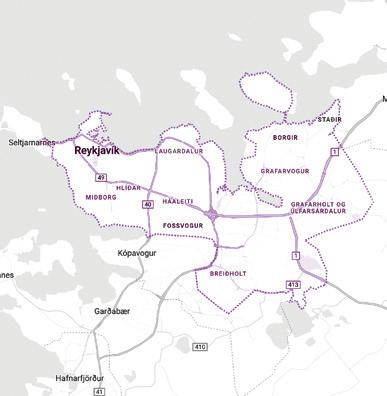
LOCATION
Reykjavík, Iceland
POPULATION
136,894 residents
CITY SIZE
105.4 square miles
PROGRAM
Digital i-team City 2021-2024
The City of Reykjavík faced a pressing issue: its schools lacked efficient support services, hindering students’ academic progress and social wellbeing. Recognizing this challenge, and in support of the city’s Better City for Children initiative, Reykjavík’s Center-supported digital i-team embarked on a journey to fully understand the needs of students, families, and teachers through research and engagement sessions. The digital i-team listened to the voices of the community, deepening their understanding of the obstacles presented by the schools’ outdated paper-based system and learning the common desire for more robust and tailored student support services. As part of this initiative, the i-team’s artist-in-residence – an artist embedded in city government and the i-team with a focus on using art to communicate with residents and tell the story of the work of their city – introduced students to a creative art-making activity that involved threading beads on strings in response to questions about the students’ experiences at school. This unique approach to engaging children captured students’ emotions and perspectives while visually conveying to city residents the importance of transforming school services to support students and families. With this understanding, the i-team developed on-site “Solutions Teams” uniting teachers, coaches, behavioral specialists, and school administrators at the city’s 44 schools. By digitizing student records to ensure fast and secure data access, the team’s work is paving the way for Reykjavík’s students and teachers to receive prompt, tailored, and improved support.
In addressing the common and pressing need in cities to attract new, diverse talent, Washington, DC encountered a challenge – and an opportunity: how to attract, hire, and retain recent graduates of DC’s historically Black colleges and universities (HBCUs) in the city’s workforce to build a talent pipeline for the city’s young and diverse residents. Mayor Muriel Bowser and the DC Office of Innovation (i-team) recognized the importance of understanding the employment aspirations of students and young residents. In 2023, they embarked on a collaborative journey with 26 students from Howard University and the University of the District of Columbia. Through intensive engagement sessions and after receiving feedback from students highlighting the need for more direct pathways to professional careers, the city and its young residents illuminated a clear path forward: the creation of year-long paid apprenticeship positions and professional development coursework tailored to the aspirations of young talents. The HBCU Public Service Program was born. A pioneering initiative designed to bridge the gap between education and employment for graduates of the area’s HBCUs, this program not only offers attractive career opportunities but also streamlines the transition from academia to professional life. Today, the program aims to facilitate seamless entry into the city’s workforce for talented individuals from underrepresented backgrounds, enriching Washington DC’s vibrant community and fostering a culture of inclusivity and opportunity.
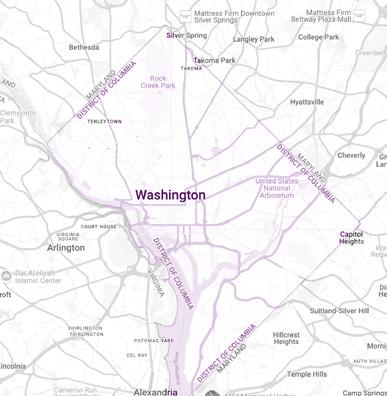
LOCATION
Washington, DC, USA
POPULATION
670,587 residents
CITY SIZE
61.13 square miles
PROGRAM
Digital i-team City 2021-2024
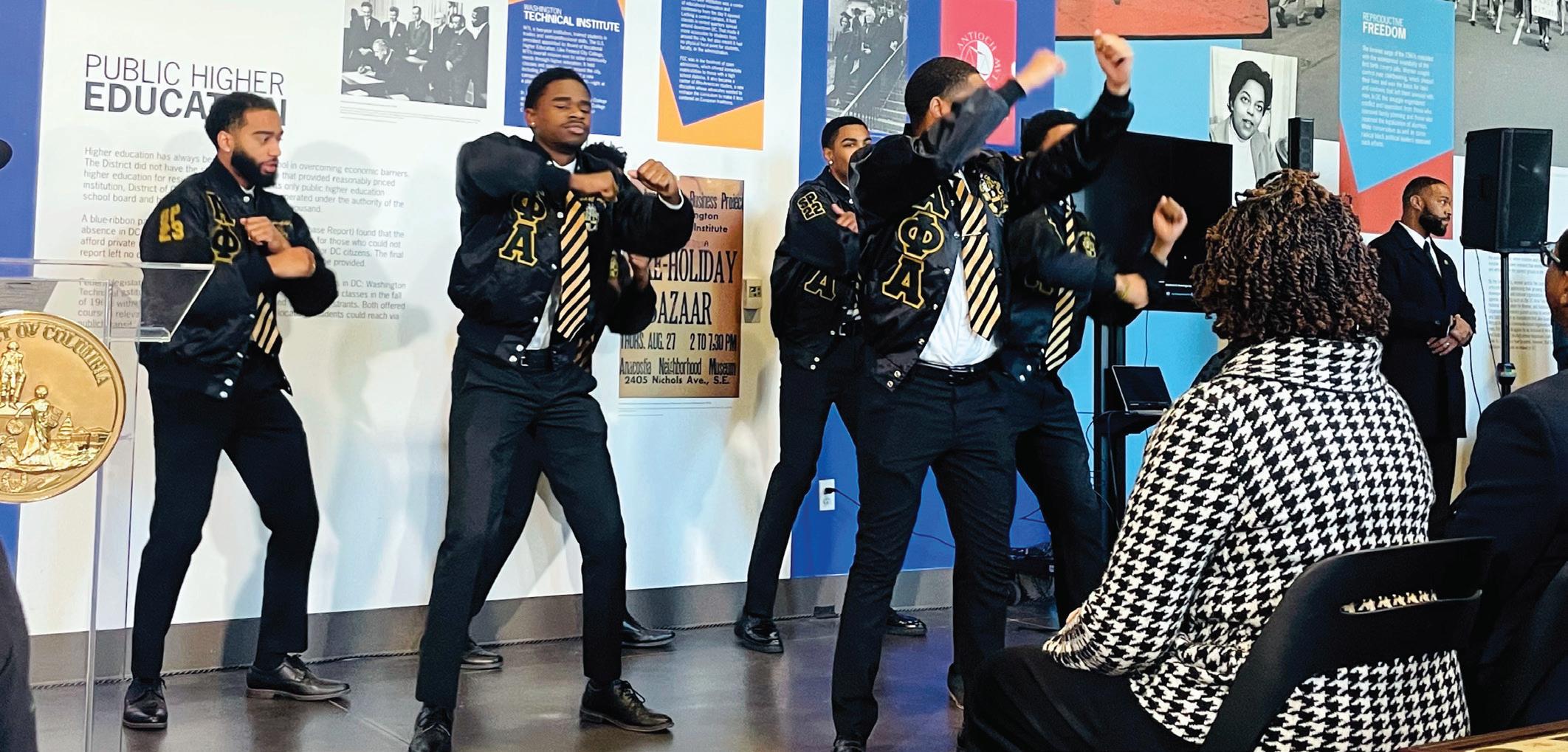
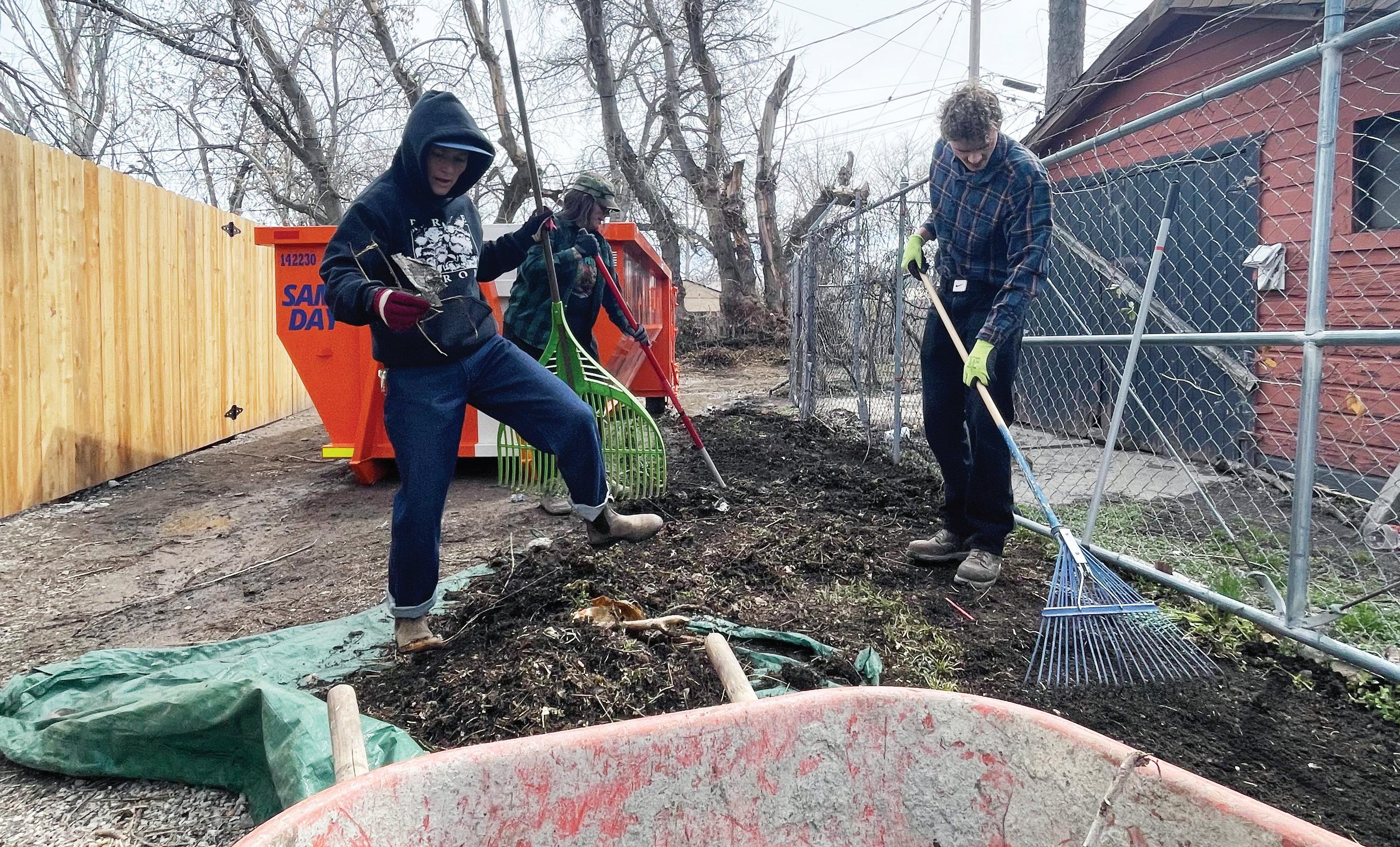
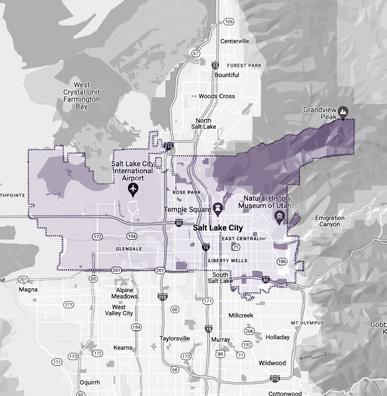
Salt Lake City, Utah, USA
residents
Your Block City
7,600+ volunteer hours
Salt Lake City saw a need for resident-led work and increased civic engagement. After two years of impactful participation in the Love Your Block program – which provides funding, staff, and technical assistance through the Center – Salt Lake City’s increased tools and methods for resident engagement inspired the city to commit to permanent community-led change as a part of its ongoing work. Two new full-time city staff positions on the Mayor’s Community Outreach Team build on more than 7,600 volunteer hours and engagement with more than 4,000 community members through Love Your Block. The city’s commitment to this work institutionalizes its community engagement efforts and focuses on identifying neighborhood-level issues and co-designing solutions with residents. While sustaining the city’s work to drive resident-led property repairs, trash removal, greening, public art and placemaking, public park cleanups, trail and transit enhancements, river and waterway cleanups, and other neighborhood improvement projects, these new roles have significantly increased community members’ capacity to lead, exercise their voices, navigate city processes, and apply for larger funding opportunities, fostering trust with city hall and creating meaningful opportunities for the mayor to engage directly with underrepresented communities.
Fortaleza, Brazil, generated 60 percent more waste per resident than other Brazilian cities, adversely impacting the city’s environmental and public health. Through a sustained collaboration between the Center and the Fortaleza Innovation Laboratory, LABIFOR, the city has applied innovation methodology to deliver on a portfolio of ambitious waste management interventions, including the Re-ciclo program that incorporates informal waste pickers into the city’s collection system of recyclable materials, which ensures safe and efficient working conditions and stable wages for workers. Anthony Sernus, one of the Center’s Summer Scholars in 2023, worked with the waste picker associations to develop a mobile data collection system to register the volume and type of recycling materials they collect, including a dashboard that visualizes progress towards the mayor’s goal of reaching a 50% recycling rate by 2030.
“In Fortaleza, residents and waste pickers were eager for their voices to be heard, and integrating comprehensive quantitative metrics with the rich qualitative feedback from residents allowed us not only to enhance our understanding of the city’s waste management challenges but also to develop solutions that significantly improved the livelihoods of informal waste pickers and boosted recycling rates.”
– Anthony Sernus Graduate of the Johns Hopkins School of Advanced International Studies (SAIS)

LOCATION
Fortaleza, Brazil
POPULATION
2.42 million residents
CITY SIZE
121 square miles
PROGRAM
Summer Scholars 2023
Summer Scholars 2024
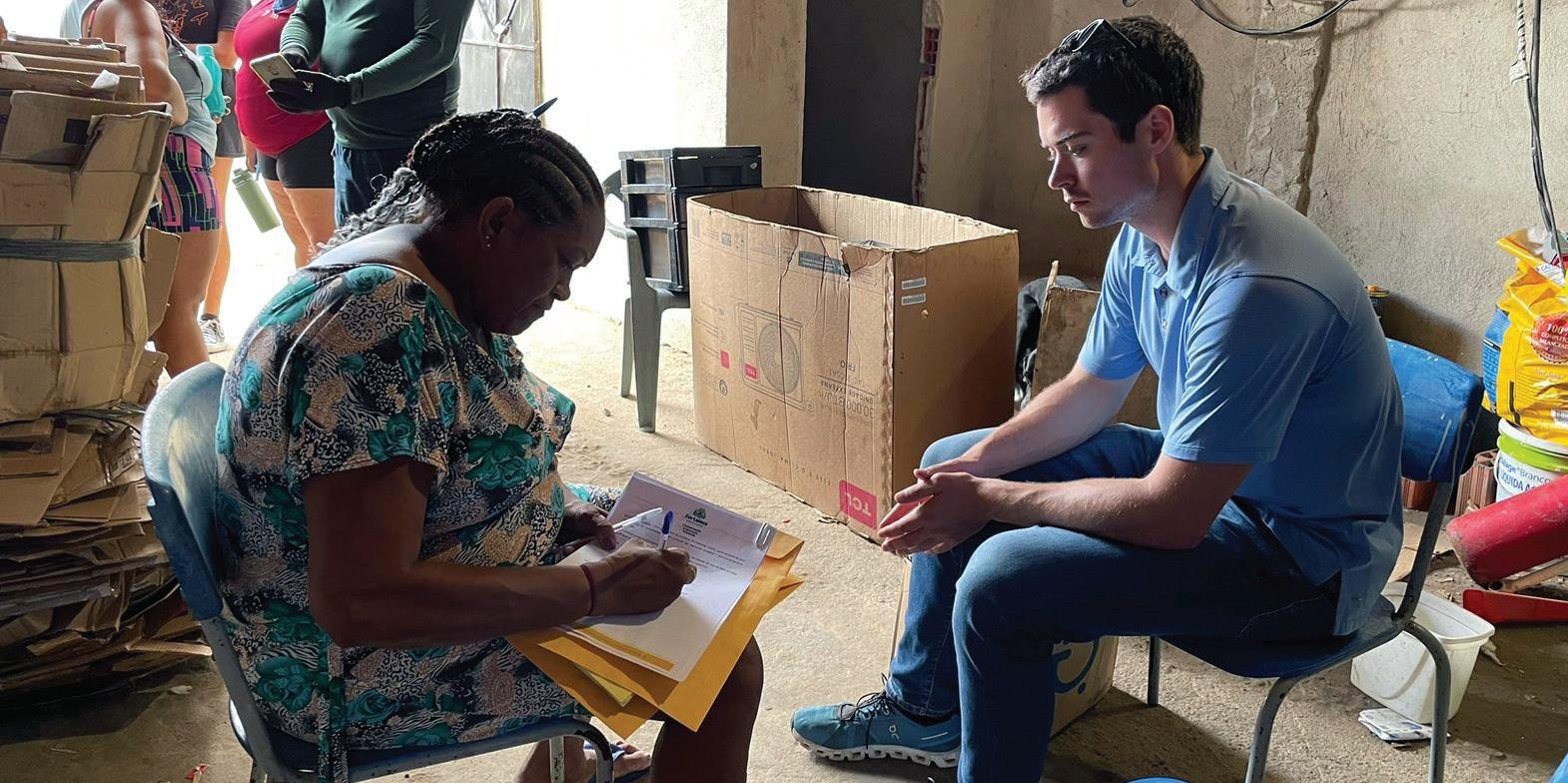
When mayors, city leaders, and communities build public innovation capacity – new skills in individual leaders and new abilities for institutions – they not only do more to impact people’s lives, but they showcase the possibilities for innovative approaches to address diverse priorities and unlock previously untapped opportunities.
From bolstering research capabilities to fostering a culture of collaboration, these advancements in capacity-building enable cities to overcome longstanding obstacles and tackle complex issues with newfound agility, ambition, and creativity.
Cities today are navigating complexity and challenges by embracing innovative methods of thinking and working to drive meaningful change for their communities.

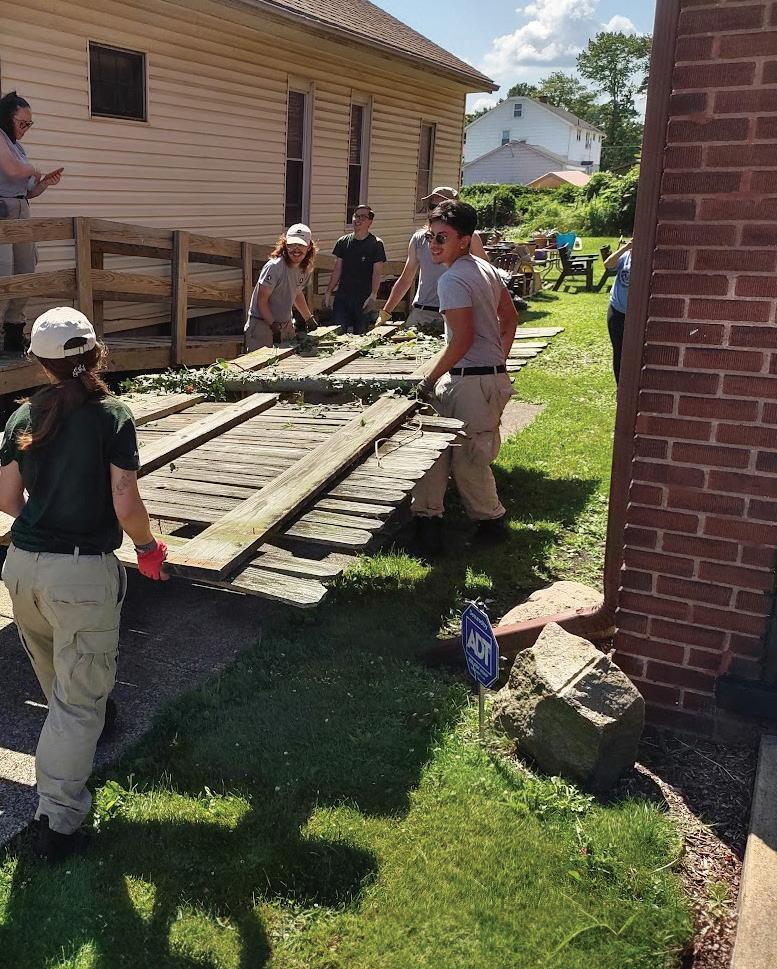
“I’ve always been interested in policy and community development, but this experience opened my eyes to innovation. I had no idea there was so much innovation in government.”
– Janet Ortiz BCPI Summer Scholar 2023, Graduate of the Johns Hopkins Bloomberg School of Public Health

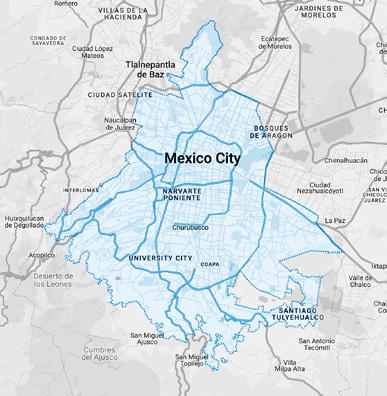
LOCATION
Mexico City, Mexico
POPULATION
9.2 million residents
CITY SIZE
573 square miles
PROGRAM
Digital i-team City 2021-2024
Mexico City leaders identified significant gaps in digital service access and service delivery for the city’s 9.2 million residents. Through the work of Agencia Digital de Innovación Publica (ADIP) and the city’s Center-supported digital i-team, the city embarked on an ambitious plan to create world-class digital infrastructure and streamlined digital public services, using digital tools to make essential city services and information more accessible to all Mexico City residents. Today, the city has undergone a stark transformation in both its digital services and capacity to innovate.
As of June 2024, more than 6.5 million residents actively use the Llave CDMX app, a single-sign-on app that offers digital access to 90 permits and 29 services through verified identity. Digital access is available widely via the city’s more than 31,000 public WiFi hotspots, an increase from 98 public Wi-Fi hotspots just five years ago.
Mi Beca Para Empezar (“My Scholarship to Start”), a program that offers up to MXN $650 to children enrolled in public schools for support to buy clothes, food, and supplies, reaches 1.2 million of the city’s children, an increase in use and enrollment from just 100,000. Residents using ADIP products report greater trust in city government and a significantly improved experience in accessing services, with 52 percent preferring the digital procedure option over in-person visits.

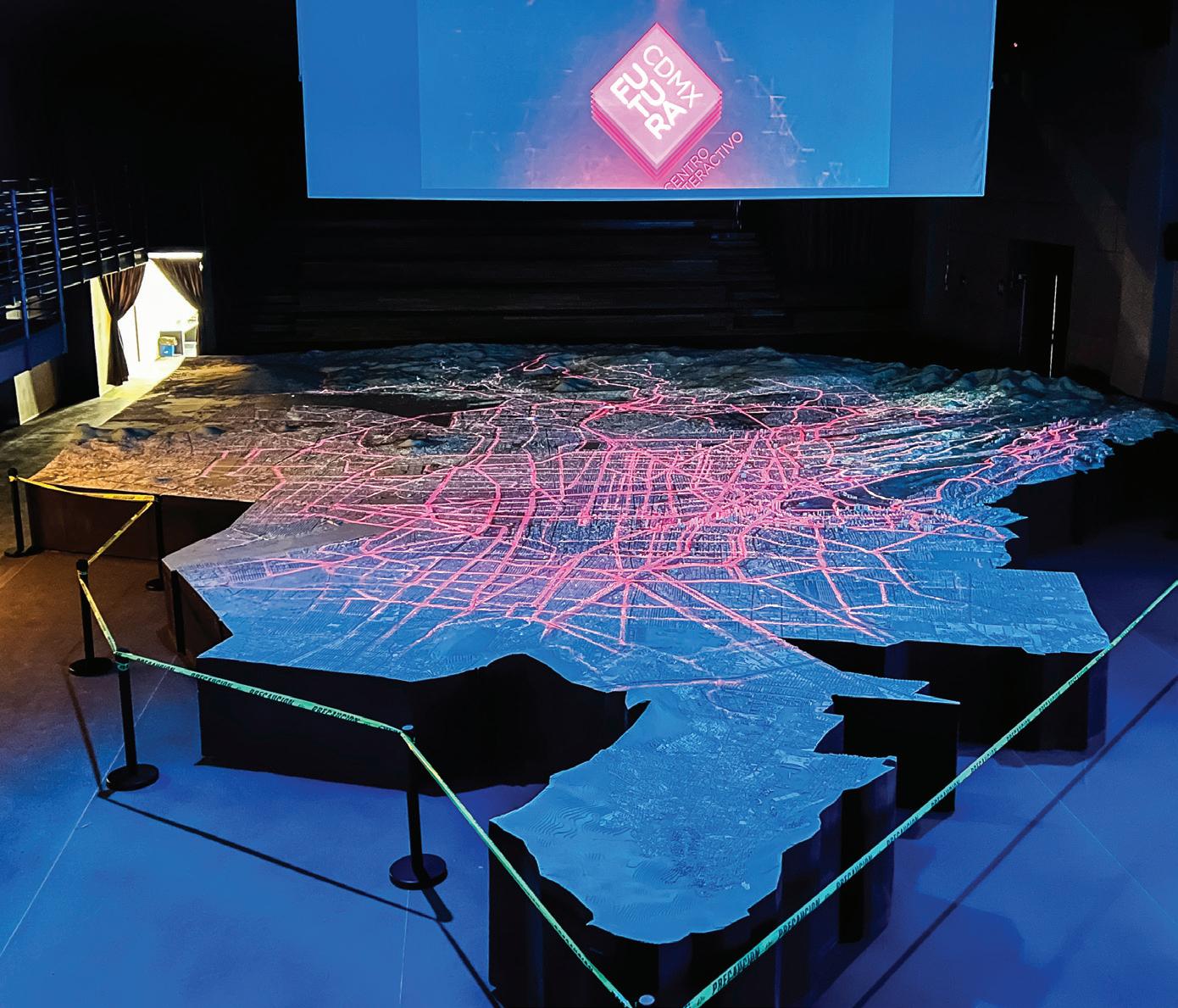
1.2M
City departments have also benefited from increased efficiency and effectiveness through i-team digital tools, particularly Motor Transaccional, a portal that empowers agencies to transition their transactions to a digital format in less than a week, making the digitization process more accessible and decentralized. Over 100 procedures have been digitized across various departments, streamlining 2,100 processes with an average of 14 requirements down to 515 processes with an average of seven requirements. This has resulted in substantial savings in funds and hours for city departments, alongside a cultural shift within City Hall, where staff are trained and equipped with new digital skills.
The success of Mexico City’s digital transformation has led to the replication of its initiatives in other jurisdictions. Six states, including Michoacán and Campeche, have launched their own versions of Llave CDMX, and there is ongoing federal expansion of Llave and ADIP initiatives. These advancements demonstrate how targeted innovation and support can lead to a more efficient, transparent, and inclusive government. Through increased accessibility to services, improved user experience, increased trust in government, and administration of services for city staff, ADIP’s work is making an impact in Mexico City by improving the quality of life for all residents.
6.5+ 100+
million resident users of the Llave CDMX app procedures have been digitized across various departments public WiFi hotspots
children benefit from the Mi Beca Para Empezar program, providing financial support for public school students
31k

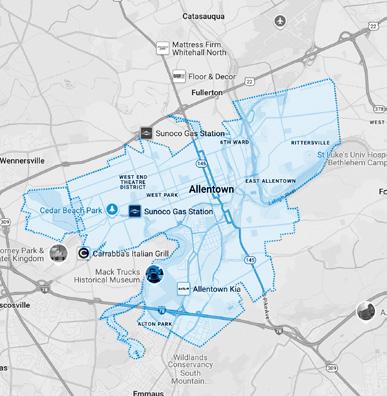
LOCATION
Allentown, PA, USA
POPULATION
125,292 residents
CITY SIZE
17.6 square miles
PROGRAM
BHCLI Innovation Track City 2023
In Allentown, an innovation journey began with the recognition of a need for enhanced community-building tools and ended with a newfound mindset and a more connected, resilient community.
Through extensive staff interviews and collaborative co-design sessions involving over 140 residents as part of the Bloomberg Harvard City Leadership Initiative Innovation Track, supported by the Center, the city embarked on a mission to create “Welcome to Allentown” classes, providing inclusive and essential resources and support for new and diverse residents, including specialized sessions for international refugees. Additionally, improvements were made to streamline processes for residents hosting block parties and organizing neighborhood events, fostering a sense of belonging and camaraderie within the community.
By leveraging the city’s rich diversity as its greatest asset, Allentown’s leaders strengthened relationships and built trust between residents and city staff. In addition, city leaders nurtured a culture of innovation through newfound skills and thinking applicable to any challenge or opportunity.
In Atlanta, the challenge of youth gun violence sparked a collaborative effort between city staff and young residents to explore innovative solutions. Together with 66 youth, parents, and community leaders, Atlanta’s team, participating in the Centersupported Bloomberg Harvard City Leadership Initiative Innovation Track, partnered with a local youth organization during engagement sessions in the lobby at City Hall, and together they reframed the problem of normalization of gun violence to focus on better delivery of trauma and healing services. The city’s prototypes included a communications campaign of public service announcements to bring awareness to its youth violence-reduction work and a connected network of service providers who strengthened their collective approach to youth violence through in-person convenings and collaboration. By empowering both city staff and young residents to engage in collaborative problem-solving, Atlanta elevated the voices of youth while fostering a sense of ownership. Through working to drive new approaches to violence reduction and safer communities, city leaders and residents strengthened their skills and mindsets and were able to innovate in the face of complex challenges.
“The innovation approach expresses the importance of equally valuing perspectives. I believe this will help us all become better partners.”
– Angela Smith Atlanta team member
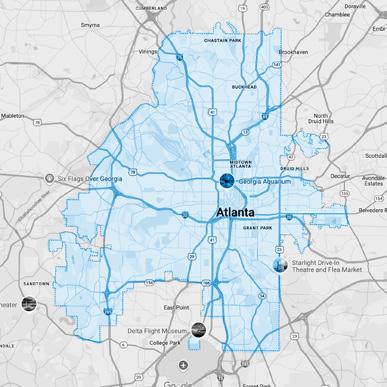
LOCATION
Atlanta, GA, USA
POPULATION
494,838 residents
CITY SIZE
135.3 square miles
PROGRAM BHCLI Innovation
Track City 2023
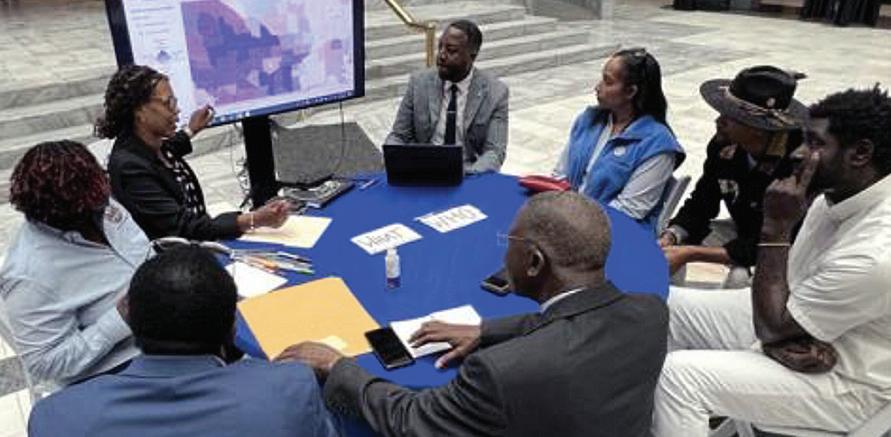
$16.7 million in WMBE consultant spending since 2021
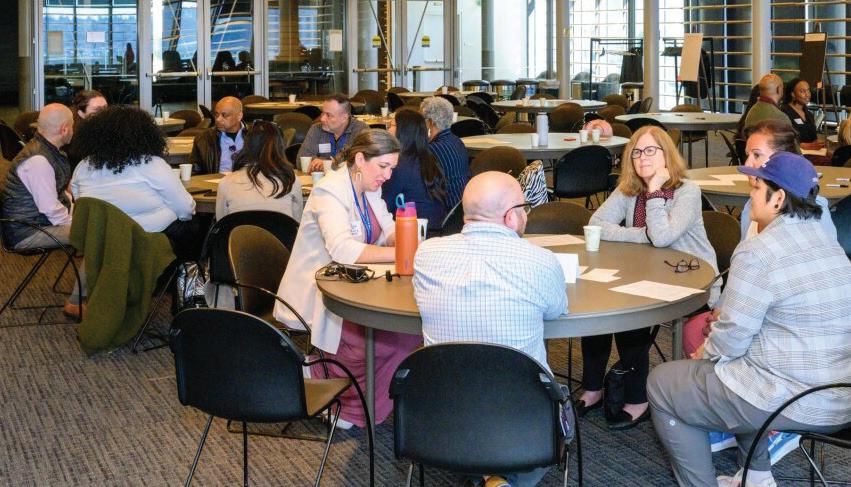
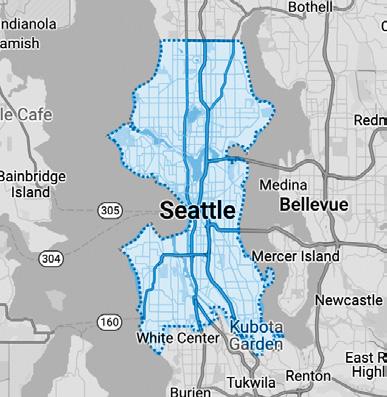
LOCATION
Seattle, WA, USA
POPULATION
734,603 residents
CITY SIZE
84 square miles
PROGRAM
BHCLI Innovation Track City 2023, Procurement i-teams City 2022-2024
In Seattle, the pursuit of inclusive procurement practices led to a change in city operations driven by data insights. Recognizing the importance of expanding opportunities for women- and minority-owned business enterprises (WMBEs), the city launched the Procurement Status Dashboard, offering new transparency into active procurement requests and overall procurement activity. Seventy-nine city staff members underwent training in innovation methods, and by leveraging the dashboard’s data, they identified bottlenecks and inefficiencies, paving the way for strategic interventions to reduce delays and enhance vendor diversity. Through this work, the city has added $16.7 million in WMBE consultant spending since 2021, an increase from 25 percent of total consultant spending to 28 percent, and $44.3 million in purchasing from WMBE vendors since 2021, an increase from 25 percent to 28 percent of total purchasing spend. By equipping city staff with new skills and tools through innovation training, Seattle is fostering a more efficient, inclusive, and equitable contracting environment.
In Syracuse, a commitment to equity-driven procurement practices led to transformed outcomes through a process of active listening and strategic intervention. Guided by coaching and training from the Center, the city engaged with local businesses and vendors to identify key barriers to opportunity access, specifically for women- and minority-owned businesses enterprises (WMBEs). This collaborative effort resulted in the digitization of the city’s directory of contract opportunities, a move that significantly enhanced accessibility, transparency, and processing time for vendors to secure contracts with the city. Through this work, the city increased its certified WMBE vendor count from 72 to 190 between July 2023 and June 2024 – a significant and important shift. Through a partnership with the Center and the Syracuse University Maxwell School of Citizenship and Public Affairs, the city implemented additional measures to streamline and expedite procurement application processes, benefiting both businesses and city employees. By equipping 50 city leaders with new skills and perspectives through innovation training sessions, the Center empowered Syracuse to foster transparency and accessibility for all prospective vendors and created new pathways for the city to fulfill its commitment to serving its diverse business community equitably and with excellence.
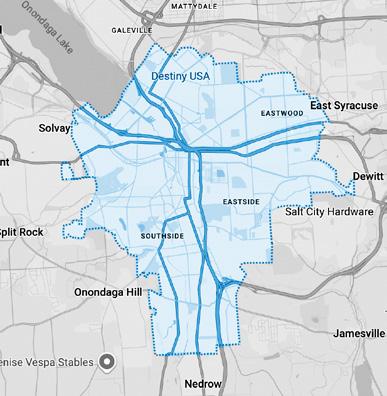
LOCATION
Syracuse, NY, USA
POPULATION
146,134 residents
CITY SIZE
25.06 square miles
PROGRAM
BHCLI Innovation Track
City 2023
Procurement i-teams City 2022-2024
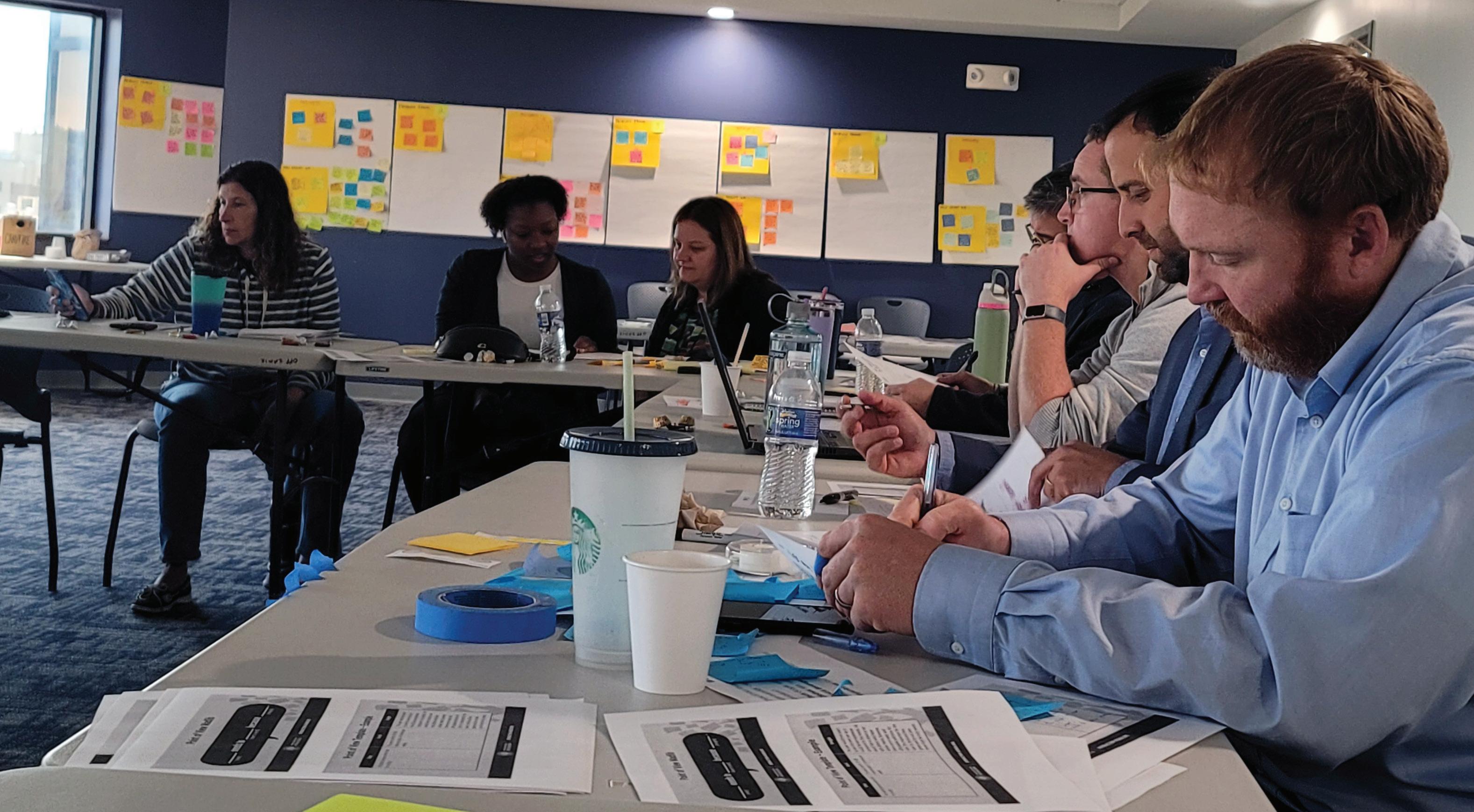
2023 HOST CITIES
Bogotá, Colombia
Fortaleza, Brazil
Erie, Pennsylvania
Salt Lake City, Utah
2024 HOST CITIES
Albany, New York
Baltimore, Maryland
Birmingham, Alabama
Cincinnati, Ohio
Fortaleza, Brazil
Raleigh, North Carolina
San Francisco, California
City governments thrive when driven by the energy and fresh perspectives of young innovators committed to creating positive change for residents. Recognizing this symbiotic relationship, the Summer Scholars Program, launched in the summer of 2023, emerged as a powerful force for cities and their residents. In 2023, Johns Hopkins graduate students, leveraging expertise from the Bloomberg School of Public Health, the School of Advanced International Studies, and the Carey Business School, seized this opportunity to immerse themselves in innovation work alongside mayors and city hall leadership teams in Bogotá, Colombia; Fortaleza, Brazil; and U.S. cities such as Erie, Pennsylvania, and Salt Lake City, Utah. The program grew in number and expanded to new cities in 2024, with nearly double the number of JHU grad students working alongside mayors and city leaders in Albany, New York; Baltimore, Maryland; Birmingham, Alabama; Cincinnati, Ohio; Fortaleza, Brazil; Raleigh, North Carolina; and San Francisco, California.
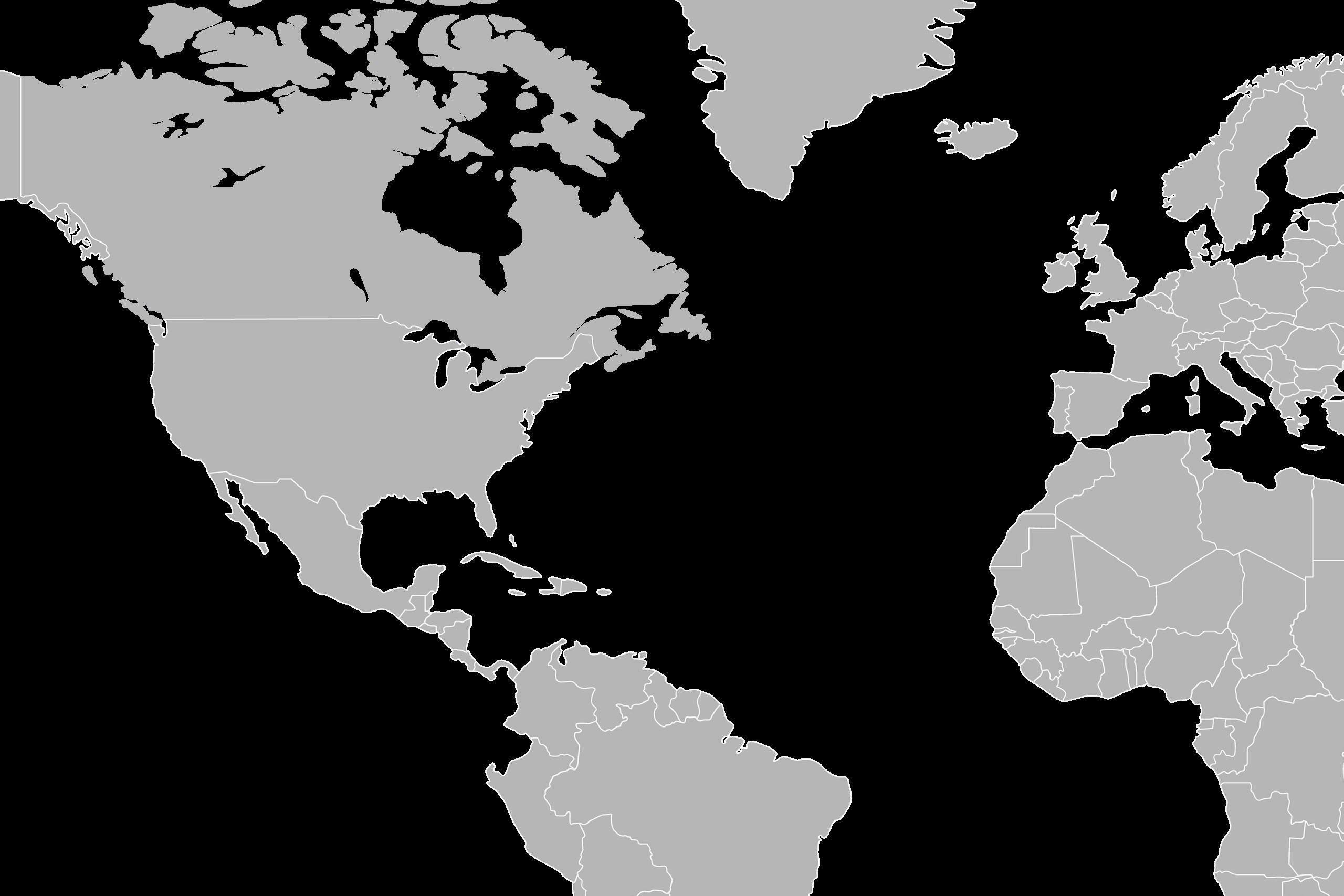
Since 2023, the Summer Scholars program has brought Johns Hopki ns students to cities across the Americas to innovate with local l eaders.
San Francisco, California
Salt Lake City, Utah Cincinnati, Ohio
Colombia
Albany, New York
Erie, Pennsylvania
Baltimore, Maryland
Raleigh, North Carolina
Birmingham, Alabama
14 Summer Scholars since Summer of 2023
The inaugural cohort of scholars brought a range of talent and expertise and an abundance of ambition, collaborating with their host cities to spark new capacities for innovation. From expanding civic engagement efforts to increasing recycling rates to mitigating the spread of disease through improved waste management, these scholars spearheaded initiatives that yielded tangible benefits for their host cities and residents alike. Their efforts not only supported innovation of city services but also contributed to a culture of resident collaboration within their host cities. In addition, the Summer Scholars program provides cities with immediate capacity to tackle issues they would otherwise have challenges addressing, allowing city governments to advance valuable work that requires specialized skills and fresh perspectives.
The 2024 Summer Scholars come from the Bloomberg School of Public Health, the Carey Business School, the Krieger School of Arts and Sciences, the School of Advanced International Studies, and the Whiting School of Engineering and partnered with mayors and local leaders to boost their capacity to address challenges and opportunities in climate equity, public health outreach, community development, racial wealth growth, and economic opportunity.
By providing JHU students with hands-on experience in public innovation work, the Summer Scholars program builds the pipeline of talent into the field of public innovation and offers once-in-a-lifetime learning opportunities that will continue to pay dividends in the form of improved experiences for residents.
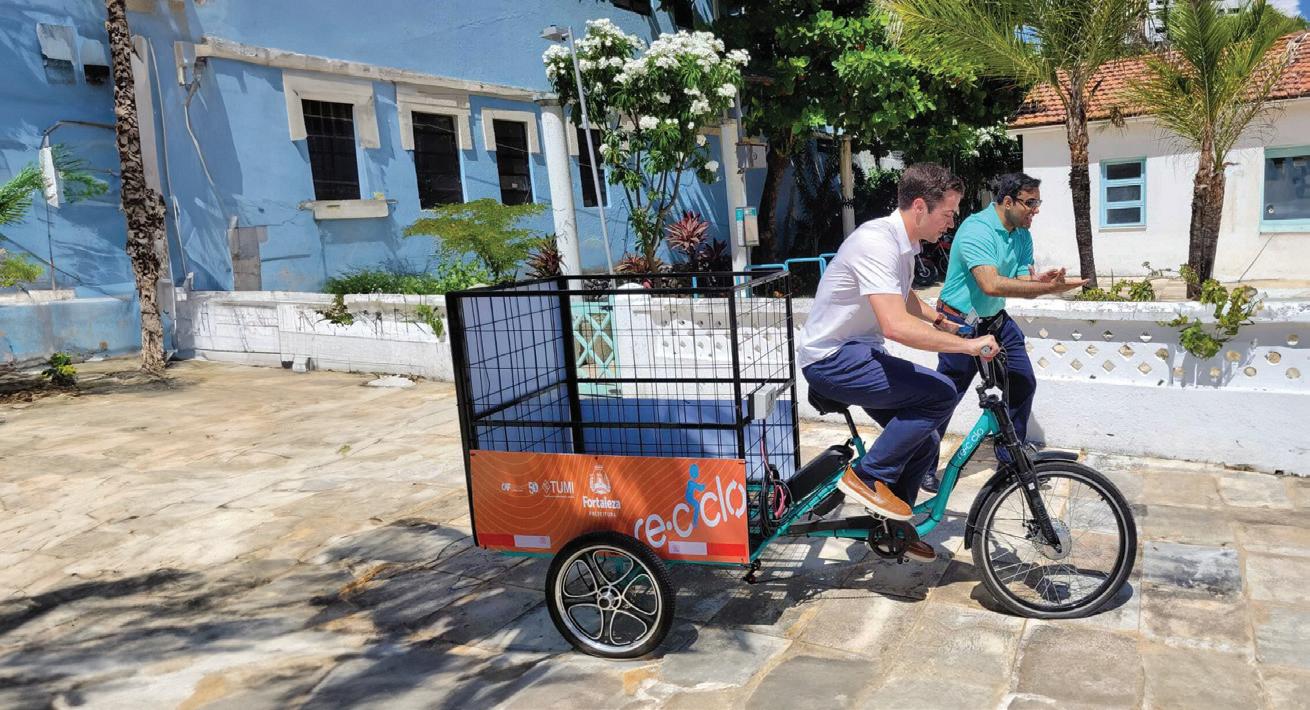

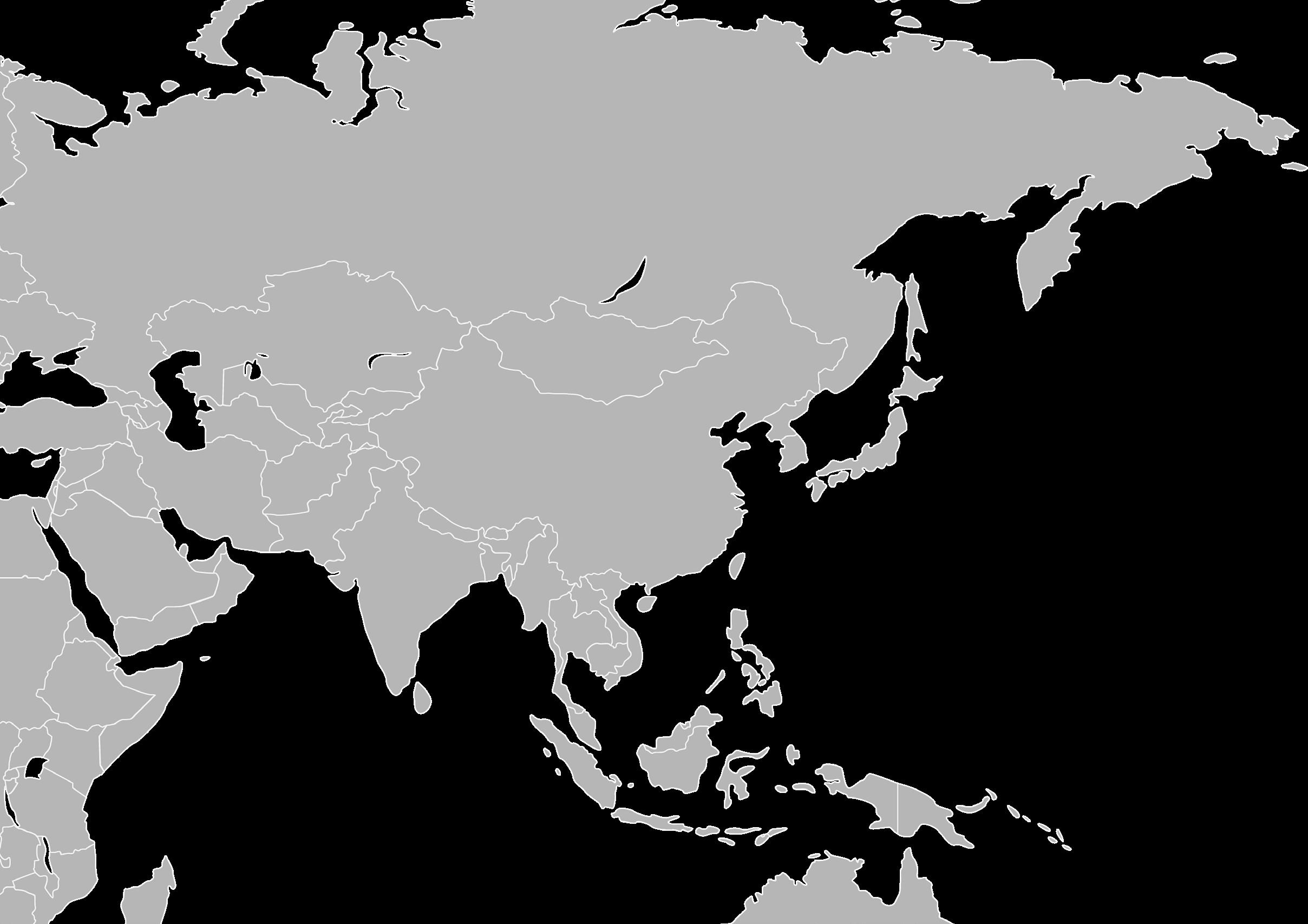
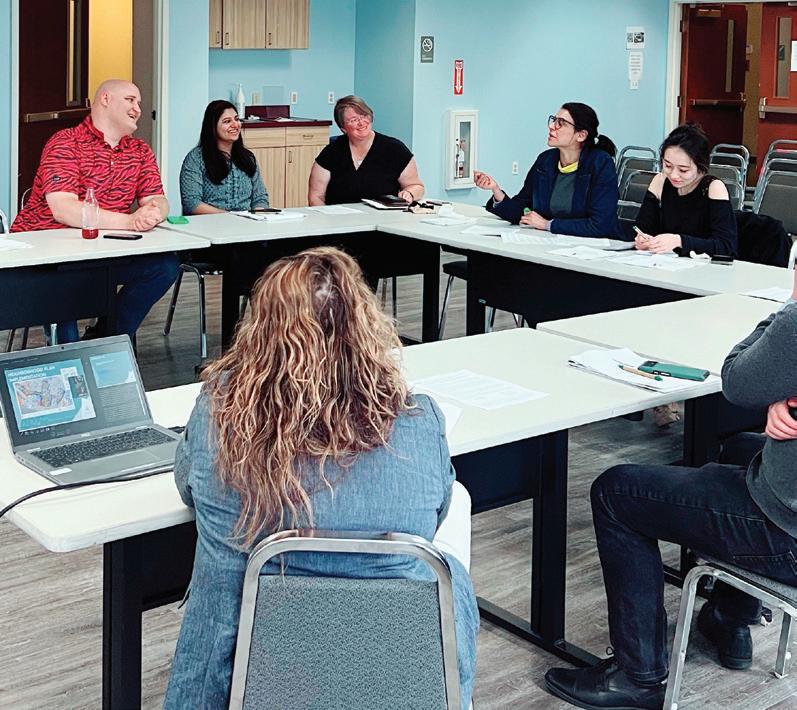
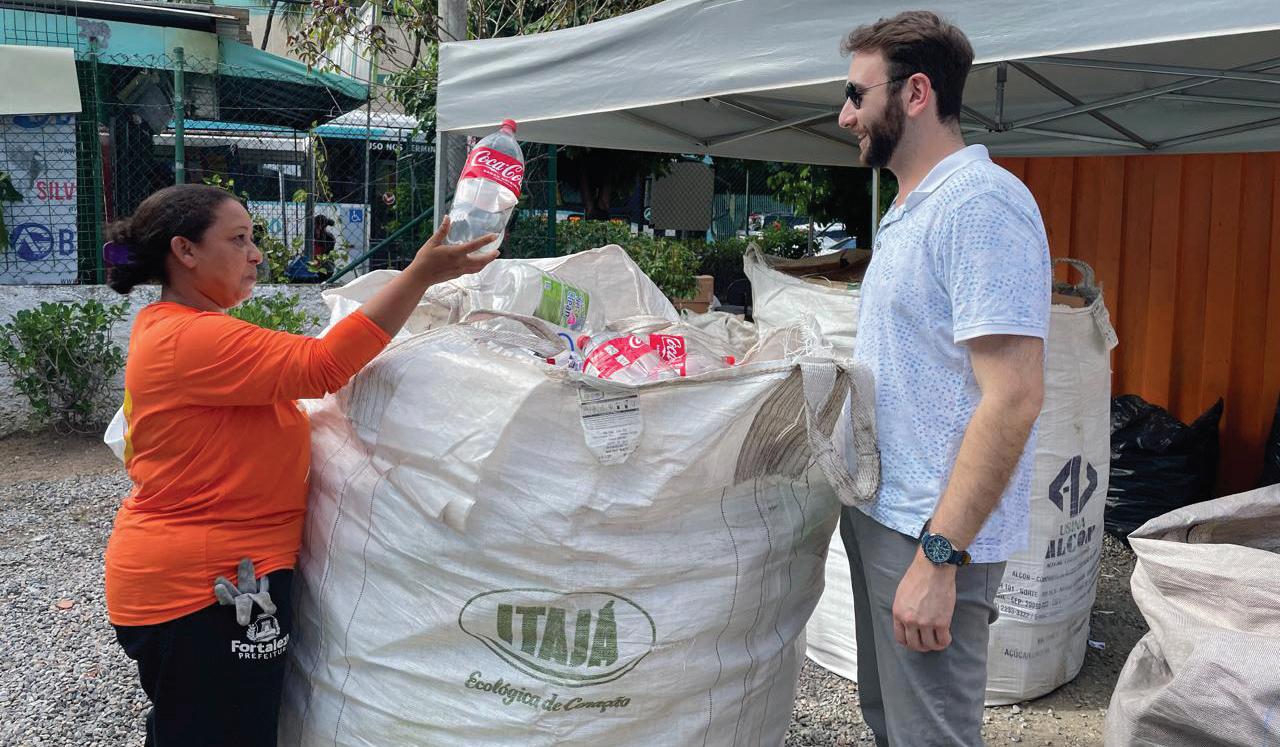
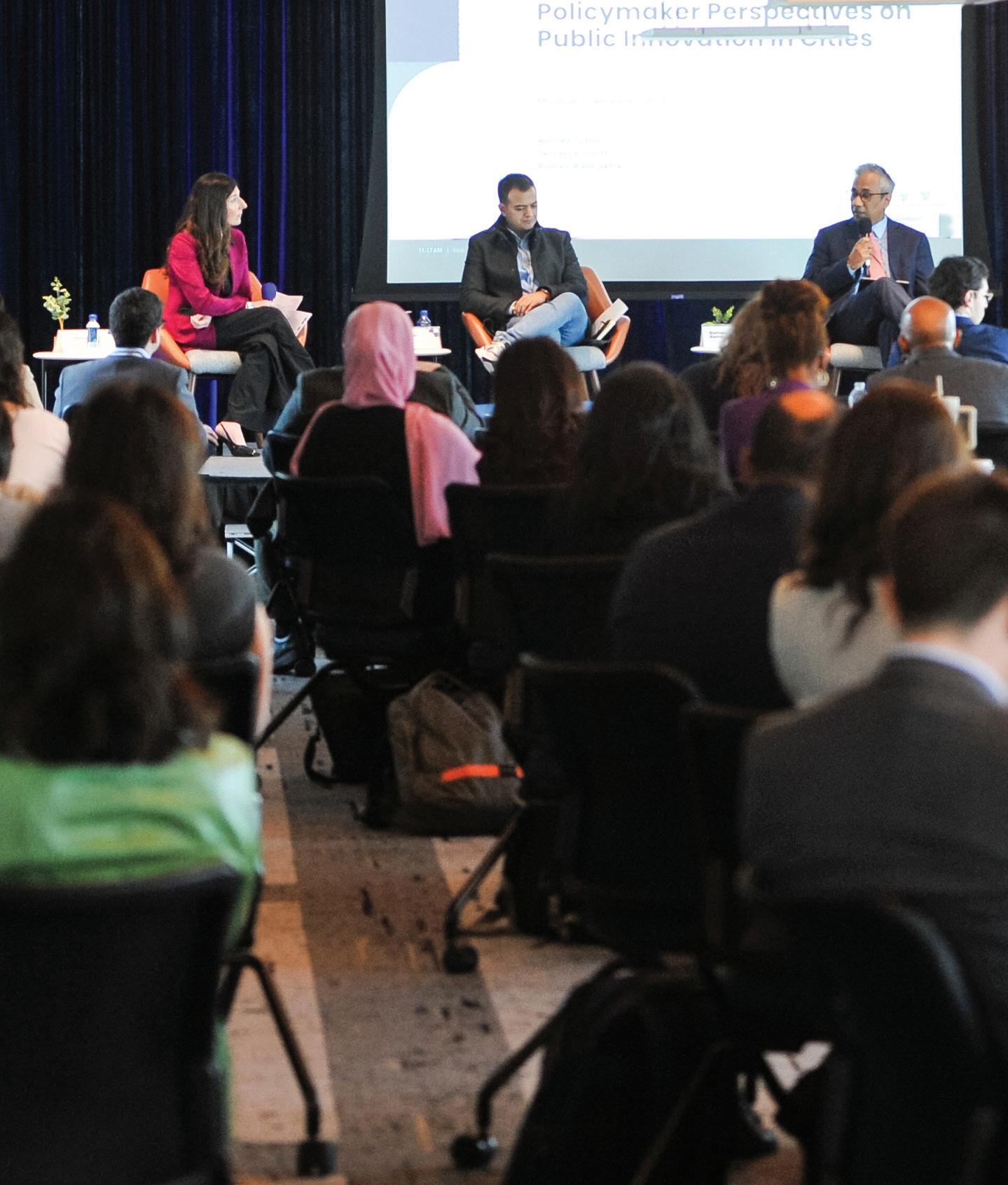
“I have seen firsthand how the Center empowers public servants with cutting-edge tools, fresh ideas, and a global network of peers facing similar circumstances.”
– Michael Baskin Chief Innovation Officer Montgomery County, Maryland
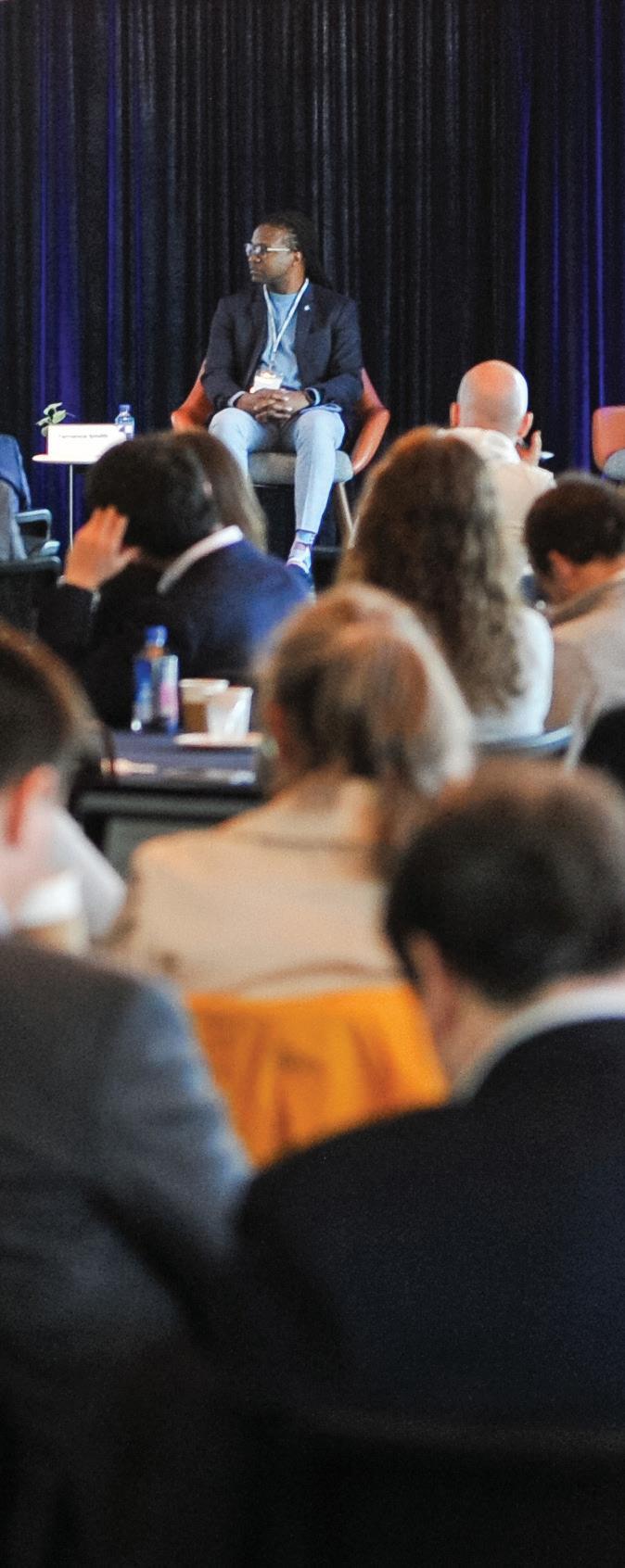
Public innovation happens in cities of all sizes and addresses a range of challenges – some familiar and some unique.
By providing tools, platforms, and immersive experiences, the Center recognizes the power of storytelling and networking to facilitate meaningful exchanges among public innovators across the globe, enabling cities to learn from each other, gain valuable insights and inspiration, and support public innovation in response to their own unique priorities.
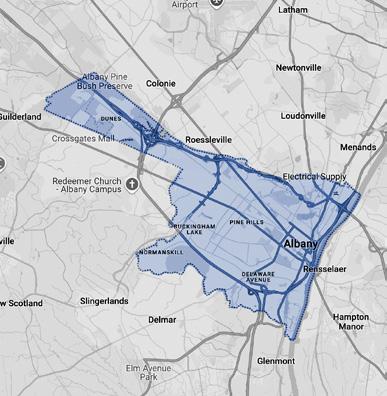
LOCATION
Albany, NY, USA
POPULATION
99,692 residents
CITY SIZE
21.40 square miles
PROGRAM
Love Your Block City 2021-2023
Since 2021, Albany has prioritized resident-led neighborhood revitalization through participation in Love Your Block. By 2023, the city had made significant strides in a concurrent and intersecting effort to remediate vacant and abandoned properties, having reduced blighted properties by 12.5 percent. This successful work was supported in part by a pivotal learning session during Love Your Block, in which Albany officials connected with the creators of Mobile, Alabama’s “blight index.” Mobile’s innovative approach to data collection and analysis informed and inspired Albany’s efforts to tackle vacant and abandoned properties in collaboration with residents and community stakeholders, highlighting the valuable exchange of ideas and strategies facilitated by programs like Love Your Block.
“Love Your Block was almost like opening the front door to [residents] to what else the city government can offer.”
– Sam Wells Neighborhood Stabilization Coordinator, City of Albany, New York

reduced blighted properties by
12.5%
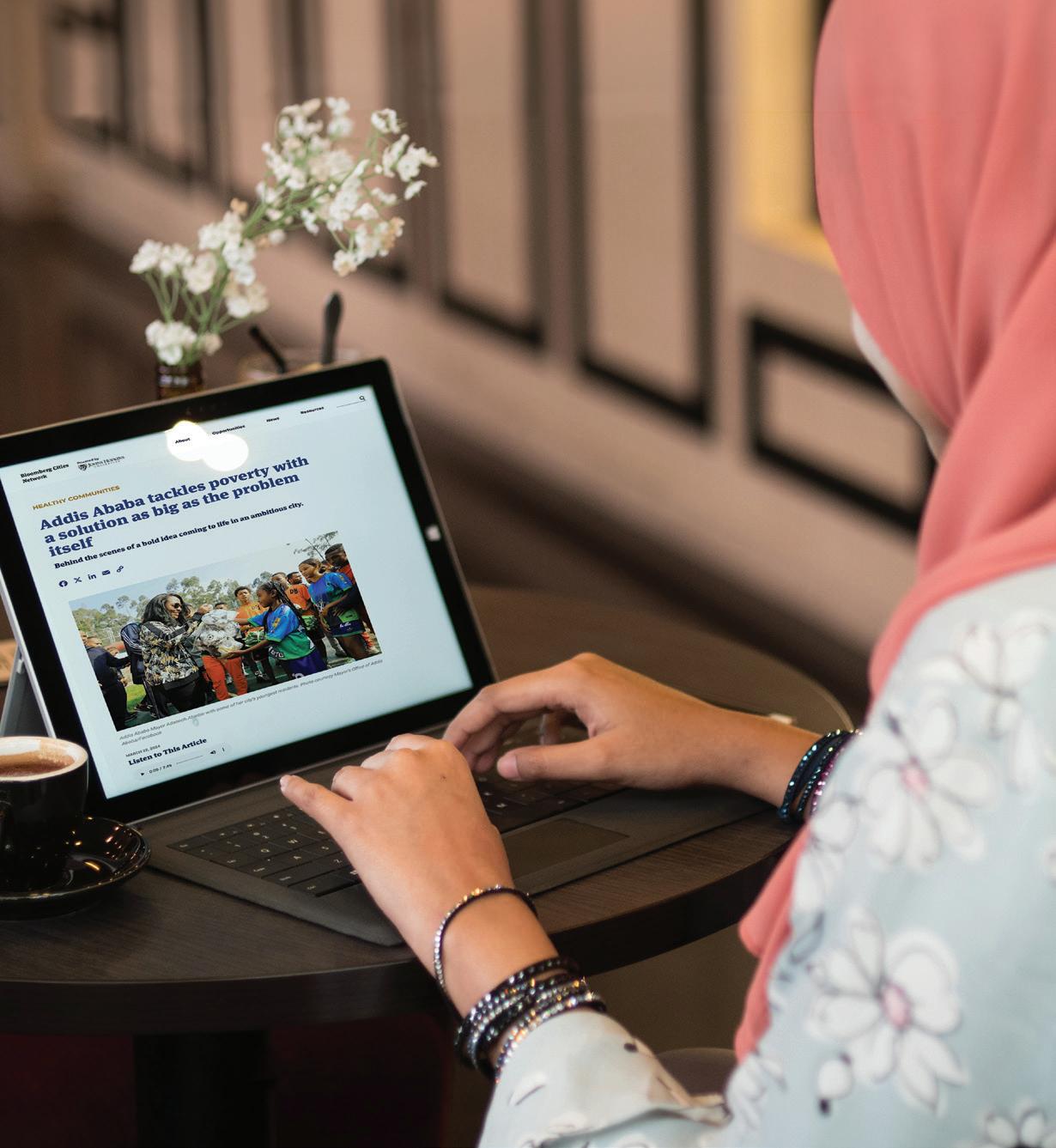
From Buenos Aires to Baltimore to Addis Ababa, cities are at the forefront of sharing insights on key topics such as artificial intelligence, affordable housing, and more via the Center-supported Bloomberg Cities. This online platform, available at bloombergcities.jhu.edu, serves as a valuable resource for public innovators worldwide, offering stories, best practices, and current examples in public innovation. From AI implementation in city governance to fostering social mobility and sustainable street safety, cities worldwide benefit from shared knowledge and experiences available through Bloomberg Cities. With over 100,000 city leaders connecting each year, this global exchange inspires and informs public innovation approaches to addressing city challenges and driving positive change.
The Public Innovators Network is the premier place for city leaders to learn from one another and access cutting-edge public innovation resources and support. Providing a trusted peer network of more than 1,500 city leaders from upwards of 500 cities in 72 countries, the Network welcomes exceptional local government leaders and staff from across the globe who are committed to using innovation, data, collaboration, and resident engagement. Through a trusted peer network, exclusive events and experiences, resources and specialized content, and innovation spotlights, the Network empowers city staff and practitioners to deliver exceptional results for people.
Join the Public Innovators Network today at bloombergcities.jhu.edu/network-application
72 Countries in the Network
500 Cities in the Network
1,500 City leaders in a trusted peer network

When we unite rigorous research with service delivery, we amplify the impact, scale, and efficiency of realizing public innovation within cities. Core to the field of public innovation is the crucial aspect of evidence-based decision-making, and the Center’s world-class academic grounding at Johns Hopkins University supports rigorous research in support of effective public innovation practice.
In 2023, cities like those exemplified here significantly advanced their impact by harnessing the combined expertise of researchers and practitioners. This synergy created new visibility into effective public innovations and facilitated the translation from knowledge to action, inspiring and catalyzing positive change globally.
Visit our resource library at: publicinnovation.jhu.edu/resources
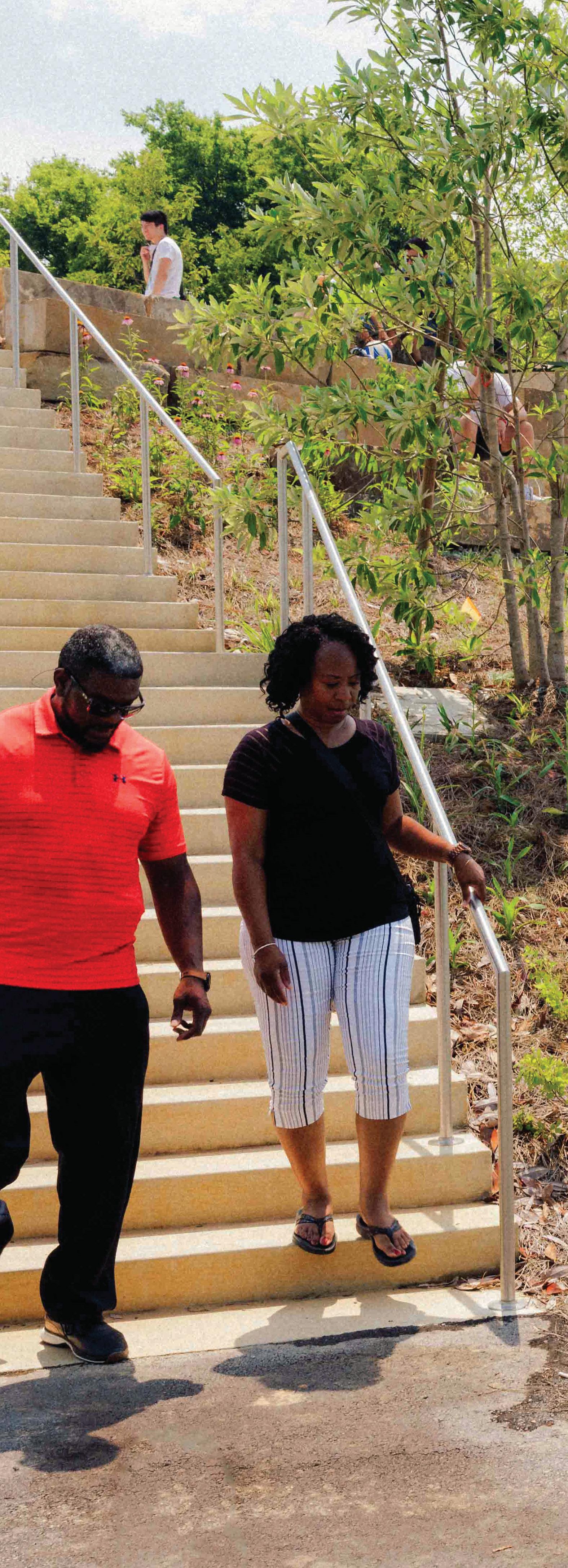
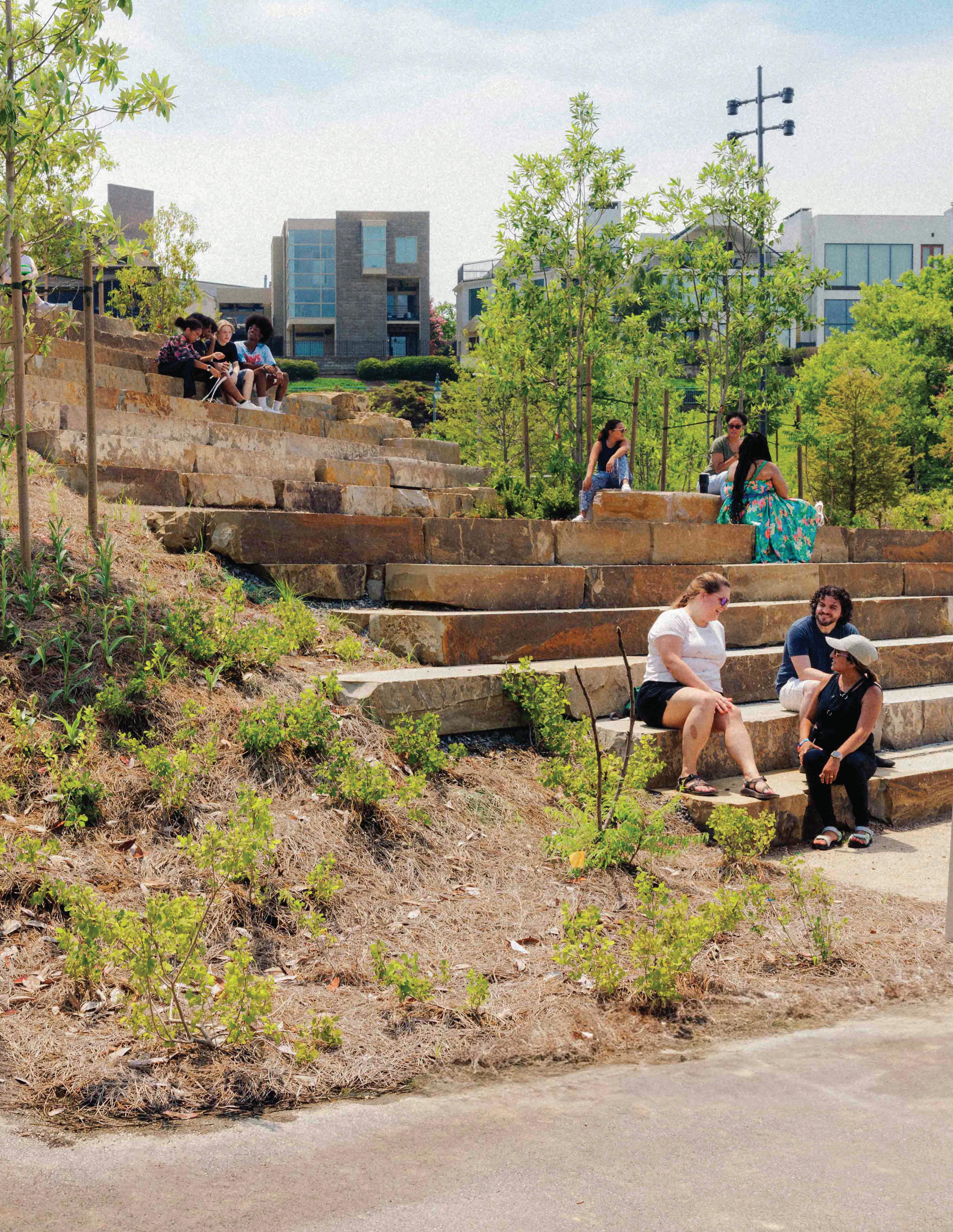
“BCPI’s insights enriched our efforts to document the rebirth of Tom Lee Park, and our co-authored case study offers guidance for other cities pursuing
– Carol Coletta President and CEO
Memphis River Parks Partnership

Barranquilla, Colombia
1.3 million residents
59.5 square miles PROGRAM
Bloomberg Public Innovation Fellowships
Barranquilla, Colombia stands as a model of trust and trust-building, showcasing its impact across various sectors, from public health and safety to the city’s ambitious Todos al Parque (Everyone to the Park) project. In 2023, the city’s commitment to trust as a cornerstone of public innovation – trust built with residents over the course of years spent demonstrating ability, humanity, and integrity – came into focus through Center research conducted by Bloomberg Public Innovation Fellow Terrance Smith. Smith’s academic inquiry elevated the critical aspects of Barranquilla’s trust-building success with its residents, including the city’s creation of 1.9 million square meters of green space and commitment to ensuring that 93 percent of the city’s residents live within an eight-minute walk of a public park. Smith’s research shed light on the profound impact of cultivating trust between city leaders and residents, offering actionable insights for other cities aiming to replicate Barranquilla’s success. Specifically, city leaders fostered trust through resident engagement and consistent, transparent delivery of promised responses to their needs. By delivering solutions to residents’ basic needs, such as adequate paving of local roads, Barranquilla’s leaders were able to build a foundation of trust. This allowed the city to ultimately gain widespread community support for more ambitious projects, including the installation of vibrant neighborhood parks throughout the city. Findings from Smith’s broader research on trust and trustworthiness are now being shared in the Center’s training programs and city support worldwide to assist leaders in their efforts to integrate trust-building into everyday service to residents.







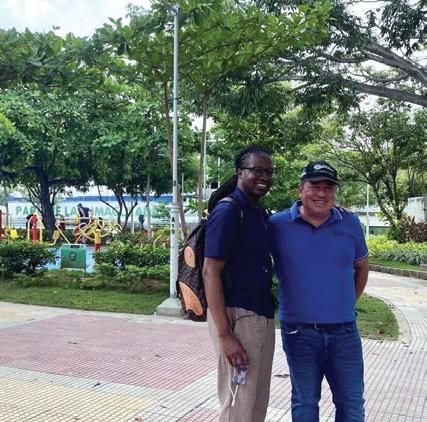
Creation of 1.9 million square meters of green space
Commitment to ensuring that 93 percent of the city’s residents live within an 8-minute walk of a public park
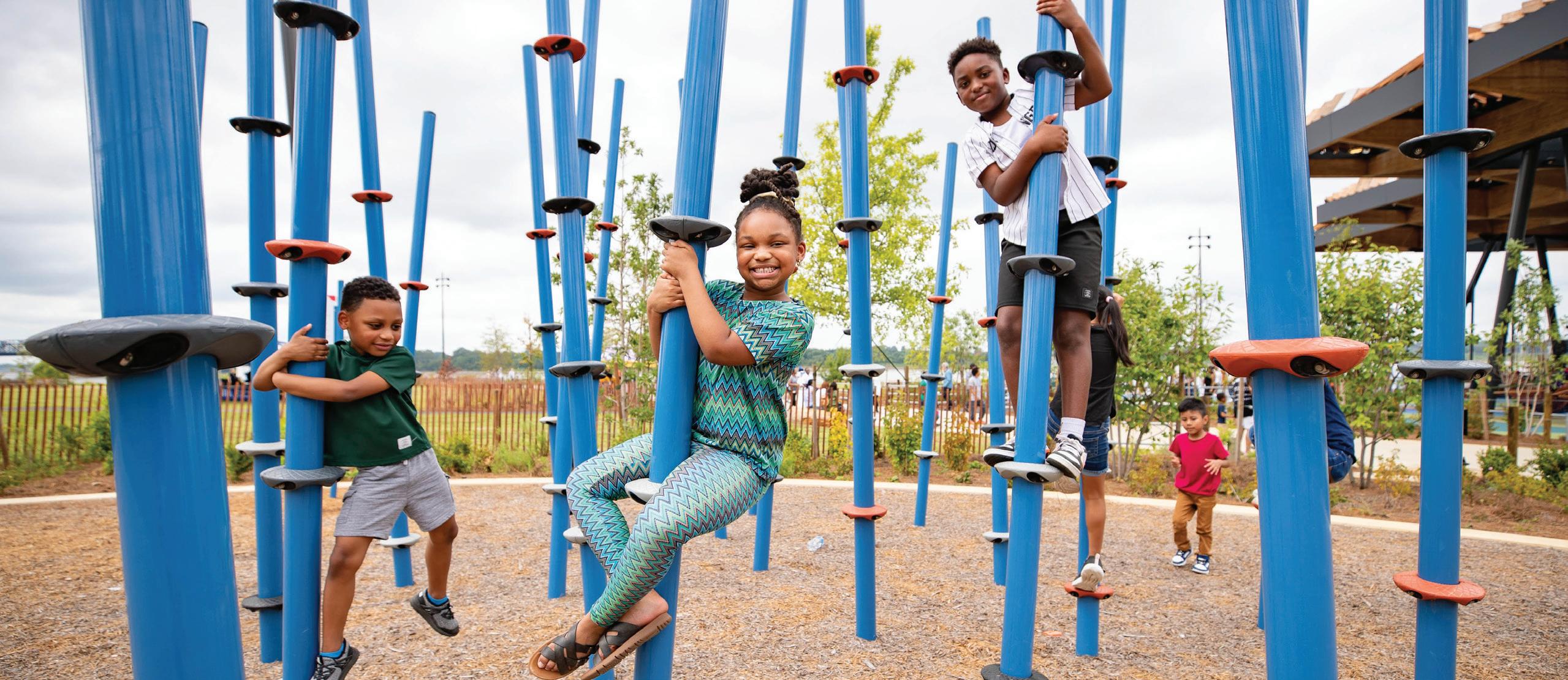

MEMPHIS, TENNESSEE, USA
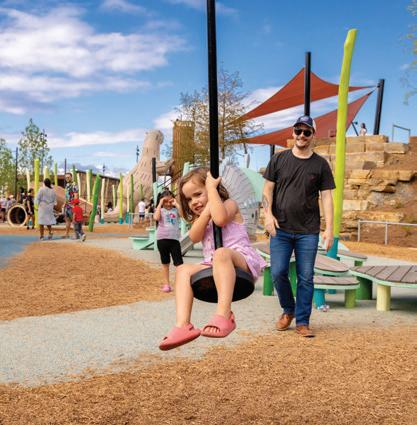
Creation of a diverse coalition that recognized the opportunity to synthesize data and find solutions for equitable spaces
Commitment to a sense of belonging in public spaces
The successful unveiling of Tom Lee Park in Memphis, Tennessee, USA in September 2023 marked a milestone in reclaiming the city’s waterfront, supported by a diverse coalition. Amid national recognition, it was clear the city’s story could be examined for insights for governments seeking to prioritize equity in public space development. Recognizing the opportunity to elevate Memphis’ accomplishment, the Center joined forces with the Memphis River Parks Partnership to examine the factors contributing to the park’s success and its inclusive design. Through research and analysis, the Center synthesized valuable insights for municipalities looking to embrace equity in their placemaking endeavors. The case study, “Inclusive Placemaking: Tom Lee Park, Memphis,” delves into important questions such as “How can urban spaces foster safety and a sense of belonging?” and “How can cities engage historically marginalized stakeholders in critical conversations?”
Cities and their leaders can discover the transformative work in Memphis today by downloading the case study and learning more about the potential for equitable innovations in public space development.
Learn more at: publicinnovation.jhu.edu/resources
LOCATION
Bogotá, Colombia POPULATION
7.9 million residents CITY SIZE
118.7 square miles PROGRAM Summer
Bogotá, Colombia’s focus on human-centered resident care has long driven its efforts to meet the diverse needs of the city’s 7.9 million people, and a new resource available from the Center details insights for cities seeking to adopt user-informed, data-driven strategies to positively impact residents’ lives. In “Public Innovation: Digital Transformation for the Care Blocks in Bogotá,” a case study available now, researchers from the Bloomberg Center for Public Innovation at Johns Hopkins show how the rigorous innovation methodology employed by Bogotá’s Center-supported digital i-team not only addressed city challenges but fostered collaborative solutions with caregivers, service providers, and civic designers.
The case study examines Bogotá’s System of Care Blocks (Sistema Distrital del Cuidado or SIDICU), a network of care centers offering the city’s 3.6 million unpaid caregivers (including 1.2 million who do so full-time) with access to social services such as water aerobics, resume-building workshops, legal counseling, and child care.
Despite its success, Care Blocks faced challenges like streamlining registration and data collection processes and freeing up support staff for more programming. To address these, Bogotá’s digital i-team, Laboratorio de Innovación Pública de Bogotá (iBO), applied public innovation methodology with a focus on enhancing user experience through digital tools. This process empowered iBO to remove barriers and enhance caregivers’ social belonging, all while easing the registration process, collecting data more swiftly, and providing caregivers with more efficient access to services.
Today, through the case study, cities worldwide can learn and adopt proven strategies to leverage digital tools to positively impact resident lives by applying human-centered innovation methodology.
Learn more at: publicinnovation.jhu.edu/resources








3.6 million unpaid caregivers in Bogotá benefit from the System of Care Blocks, which offers services like water aerobics, resumebuilding workshops, legal counseling, and child care.
Bogotá’s digital i-team, Laboratorio de Innovación Pública de Bogotá (iBO), used public innovation methodology to streamline registration and data collection processes, enhancing service access and social belonging for caregivers.

“The insights of real-world examples are the best way for public servants to sharpen their practice, collaborate more effectively with each other and with residents, and improve the lives of people living in their cities.”
– Emma Miner
BCPI Summer Scholar 2023, Graduate of the Johns Hopkins Bloomberg School of Public Health, Co-author of “Public Innovation: Digital Transformation for the Care Blocks in Bogotá”

“I care deeply about approaching the needs of Baltimore and its beautiful people with humanity, patience, and creativity. Our goal as a new i-team in Baltimore is to bring energy, experience, and a new way of thinking to some of Baltimore’s biggest challenges, like housing vacancy and public safety.”

Cities and ambitious leaders demonstrate that courage is indispensable in forging new realities while tackling history’s most daunting challenges. For today’s complex challenges, public innovation emerges as the indispensable tool for confronting issues head-on.
By embracing public innovation, cities are not only addressing issues that were once unseen or deemed insurmountable but are also spearheading bold advancements at the intersection of human needs and the transformative potential of government service.

As 2023 drew to a close, a transformative commitment emerged in 25 forwardthinking cities across the United States, igniting a bold response to employ public innovation as the difference-making intervention for two of the nation’s most pressing challenges: climate action and racial wealth-building. Spearheaded by the Bloomberg American Sustainable Cities initiative, this unprecedented collaboration between Bloomberg Philanthropies, PolicyLink, the National Resources Defense Council, and the Center brings together an expansive and diverse
coalition of cities and i-teams to confront systemic issues in communities marked by historic disinvestment. Through a historic cohort of new i-teams across the country, participating cities are tackling a spectrum of systemic challenges – from enhancing flood resilience to promoting housing affordability – by leveraging tools like human-centered design, data and research, community engagement, and collaboration with diverse stakeholders, with the overarching goal of improving life for residents by fostering more equitable, just, and sustainable urban communities.
The Love Your Block program, spearheaded by the Bloomberg Center for Public Innovation at Johns Hopkins University, entered a new era of expanded impact in early 2024, advancing transformative community engagement and public innovation in a diverse array of U.S. cities. Through a new round of grants, 16 U.S. cities received $100,000 each for resident-led neighborhood revitalization
projects. These grants empower local communities to transform vacant lots, repair playgrounds, and address vacant and deteriorating properties, fostering stronger social cohesion and increased civic participation. Building on a legacy of success initiated by Cities of Service in 2009, Love Your Block has now in its history supported 50 cities across 33 states.
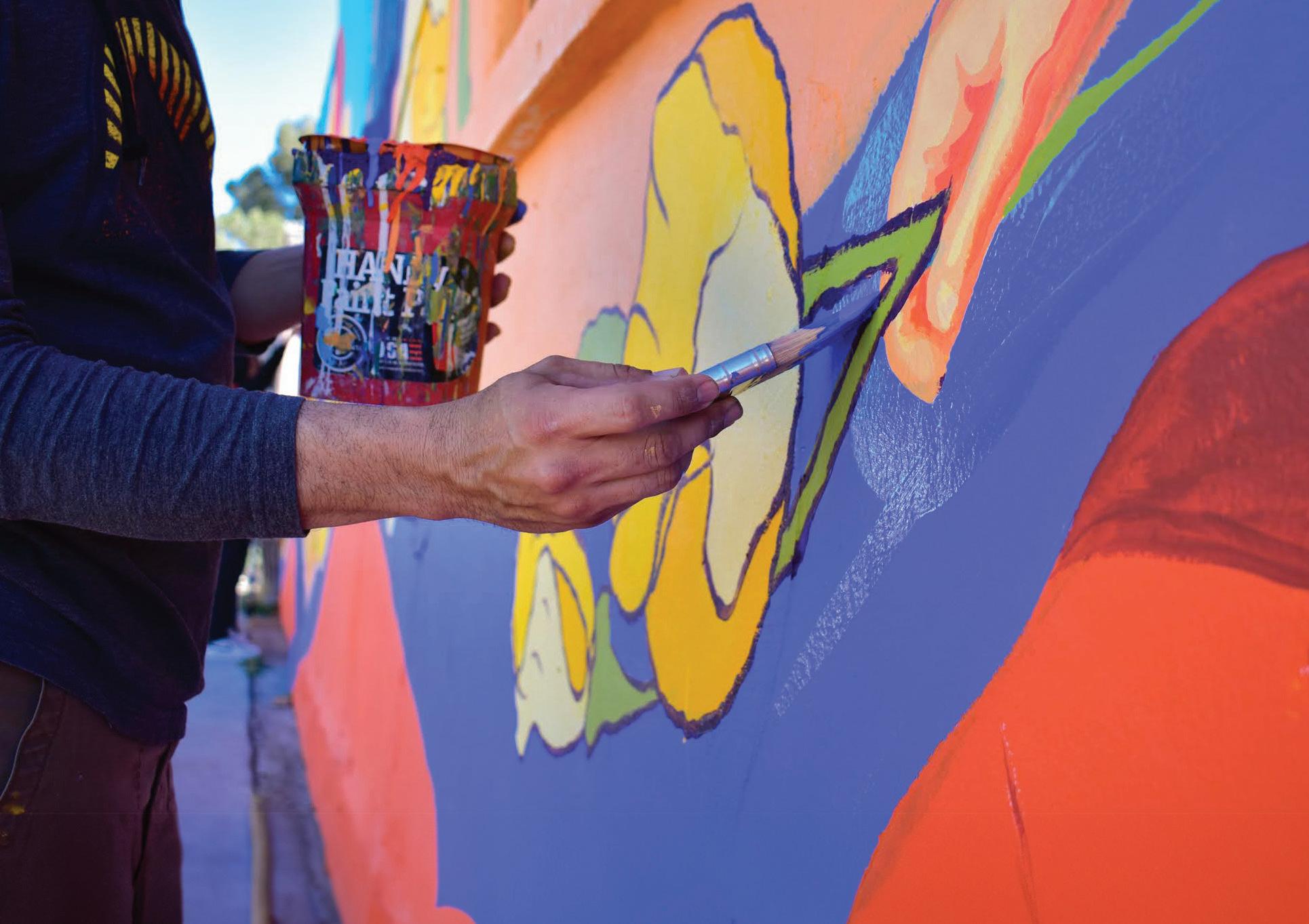
16 U.S. cities received $100,000
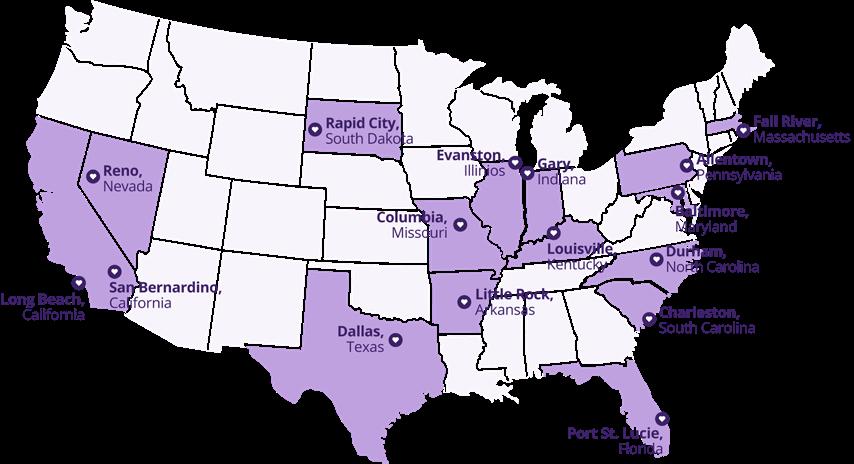

The Youth Climate Action Fund (YCAF), a partnership between Bloomberg Philanthropies, United Cities and Local Governments (UCLG), and the Center, and as a fiscally sponsored project of Rockefeller Philanthropy Advisors (RPA), is empowering cities worldwide to tackle the climate crisis with innovative, youthdriven solutions. Launched in April 2024, Phase 1 of the YCAF program provides technical assistance and funding for nearly 100 cities across more than three dozen countries, representing over 62 million residents, to mobilize young people aged 15-24 in designing and implementing urgent climate initiatives. Each city receives an initial $50,000 for microgrants to support diverse projects like treeplanting, recycling, and climate education campaigns, with the potential for an
additional Phase-2 investment of $100,000 for cities that swiftly deploy these funds. This initiative addresses the critical need for greater youth engagement in climate action, recognizing that over 60 percent of young people feel government responses are insufficient. By fostering collaboration between city governments and youth, YCAF enables mayors to harness the creativity and determination of young people, advancing decarbonization commitments and enhancing community resilience. Through technical assistance from the Center, cities are driving a new era of local climate action, ensuring the voices of the younger generation shape sustainable solutions for the future. In 2024 and 2025, Phase 2 of this exciting program will highlight and further invest in youth ideas globally.
Located between the U.S. Capitol and the White House, the iconic Pennsylvania Avenue corridor has for generations served as a nexus for pivotal research and policy discussions that have shaped the trajectory of cities worldwide. Now, a groundbreaking collaboration between Johns Hopkins University and Bloomberg Philanthropies is ushering in a new era of governance by placing public innovation at the forefront of the discourse: the establishment of the Johns Hopkins Bloomberg Center at 555 Pennsylvania Avenue in Washington, DC marks a significant milestone in this endeavor.
In 2023, the Center expanded its footprint to this prestigious location, catalyzing dialogues and fostering collaboration among visionary leaders across all Johns Hopkins’ schools, in academia globally, and in government. Events such as the Cities and Development Workshop in partnership with the JHU School of
Advanced International Studies and leading thinkers from Harvard and Dartmouth, the Knowledge-to-Action conference in partnership with Brandeis University, and the inaugural Summer Scholars Showcase exemplify the Center’s commitment to elevating the role of public innovation in addressing the complex challenges facing cities today. As the home of the new Johns Hopkins School of Government and Policy, the location will further support the Center’s efforts and provide an additional foundation for advancing public innovation in governance practices. Through an expanding presence in Washington, DC and a growing network of institutional partnerships worldwide that benefit from convening at the Johns Hopkins Bloomberg Center at 555 Pennsylvania Avenue, the Center is reinforcing the pivotal role of public innovation in government service and its overarching mission to enhance the quality of life for residents across cities globally.
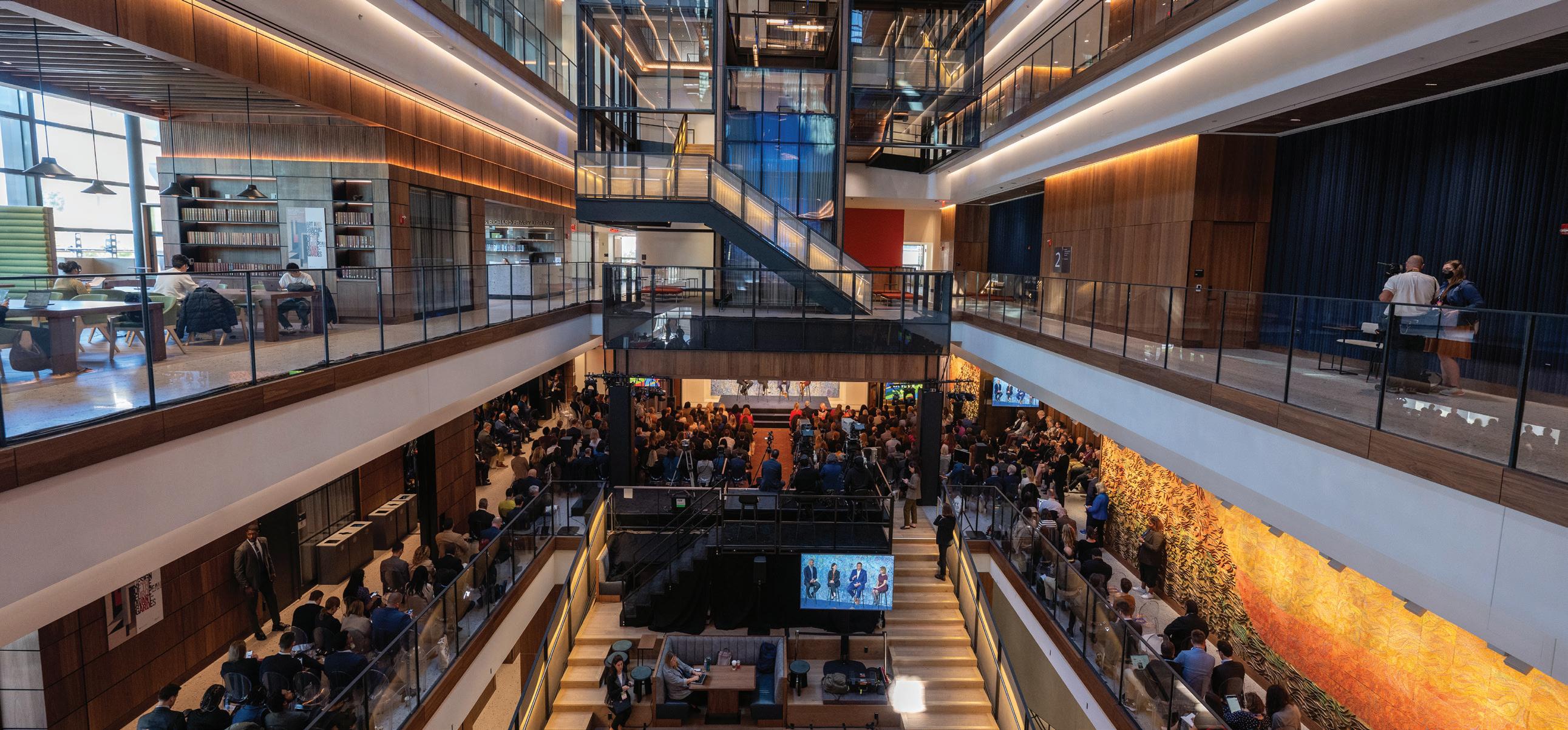
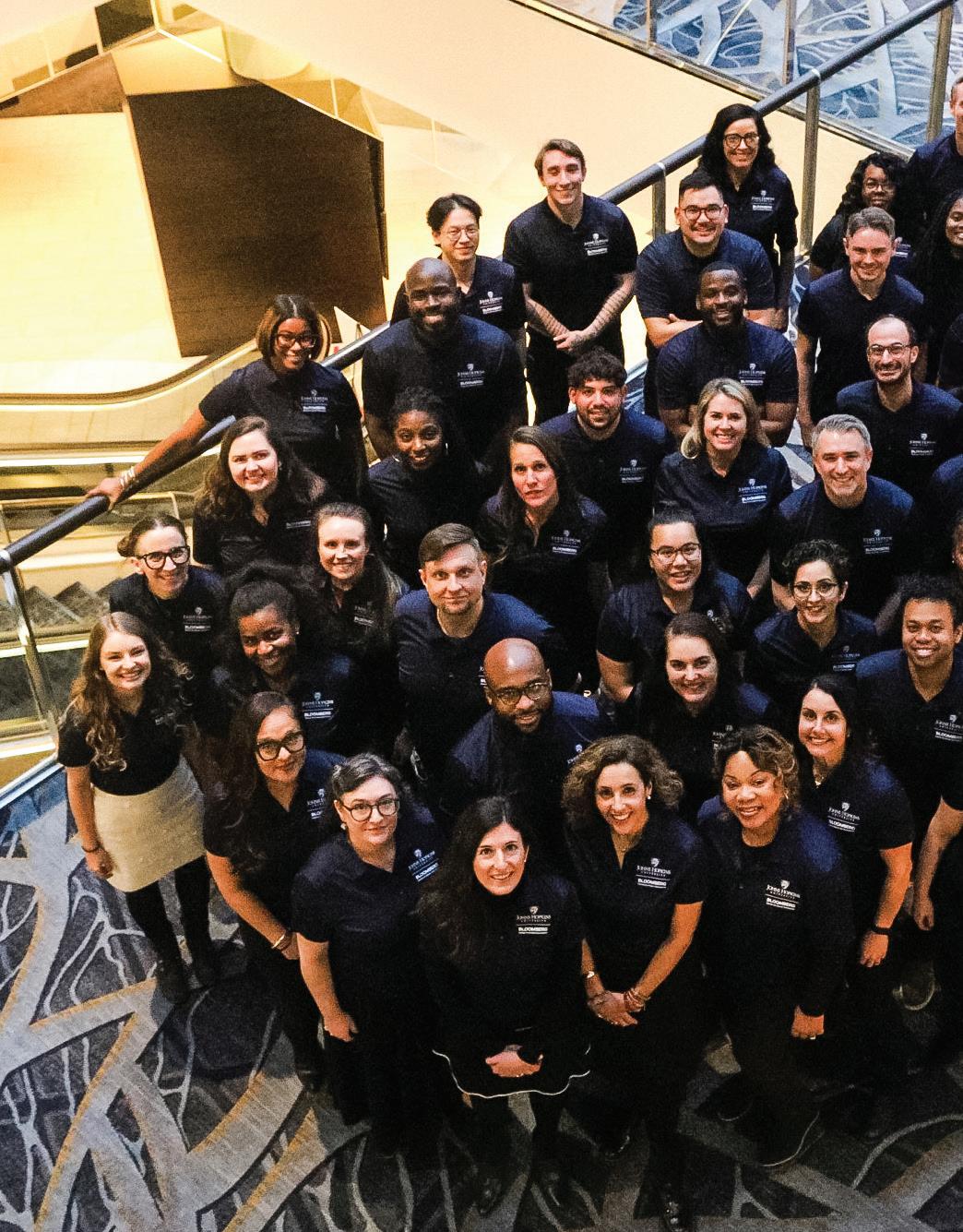
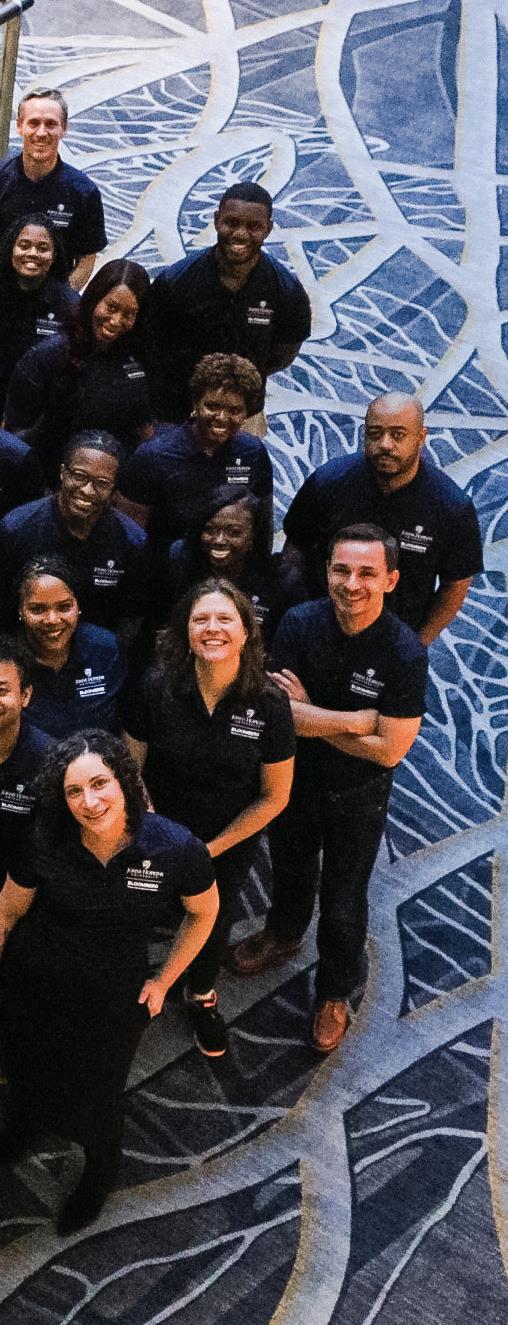
At the heart of the Center’s work is an unwavering commitment to assisting cities as they strive to improve people’s lives. We accomplish this in the continual pursuit of our mission, which is to marry cutting-edge practice with world-class research in order to help leaders transform the culture of government, deliver exceptional results for residents, and inspire trust in public service.
This commitment is made possible through partnerships with Johns Hopkins University, Bloomberg Philanthropies, and many mayors and city leaders throughout the world. Our work is further strengthened by the collaborative efforts of a vast network of institutions, partner organizations, and individuals around the globe who work to uplift people, communities, and cities. It is through this continuous dedication that cities harness creativity and ambition, drive public innovation, and exist as vibrant, equitable, sustainable, and joyous places where individuals and communities can flourish and thrive.
Akron, OH
Albany, NY
Allentown, PA
Amarillo, TX
Anaheim, CA
Arlington, TX
Atlanta, GA
Avellaneda, Argentina
Baltimore, MD Barranquilla, Colombia
Belmopan
Belize, Belize
Birmingham, AL
Bogota, Colombia Boise, ID
Broward County, FL Buffalo, NY
Cerro Navia, Chile Chandler, AZ Charleston, SC Charlotte, NC
Chattanooga, TN Cincinnati, OH Cleveland, OH Columbia, MO
Columbia, SC Columbus, OH
Comarca Kuna de Madugandi, Panama Cordoba, Argentina
Corpus Christi, TX
Cuenca, Ecuador
Curvelo, Brazil
Dallas, TX
Dayton, OH
Despenaderos, Argentina
Dubuque, IA
Duluth, MN
Durham, NC
El Paso, TX
Erie, PA
Esteban Echeverria,
Argentina
Evanston, IL
Fall River, MA
Flint, MI
Fort Lauderdale, FL
Fortaleza, Brazil
Gary, IN
Guarulhos, Brazil
Guatemala City, Guatemala
Guelph, Canada
Halifax, Canada
Hamilton, Canada
Hampton, VA
Hartford, CT
Hastings on Hudson, NY
Hoboken, NJ
Honolulu, HI
Jackson, MS
Jackson, TN
Kansas City, MO Kitchener, Canada
La Crosse, WI
Lancaster, PA
Lansing, MI
Little Rock, AR
London, Canada
Long Beach, CA
Los Angeles, CA
Louisville, KY
Lujan de Cuyo, Argentina
Madison, WI
Maipu, Chile
Mecklenberg
County, NC
Medellin, Colombia
Memphis, TN
Mendoza, Argentina
Mesa, AZ
Mexico City, Mexico
Mobile, AL
Mogi Das
Cruzes, Brazil
Moncton, Canada
Montego Bay, Jamaica
Montevideo, Uruguay
Montgomery, AL
Moreno Valley, CA
Nashville, TN
New Orleans, LA
New Westminster, Canada
New York, NY
Newport News, VA
Oakland, CA
Oakville, Canada
Oberlin, OH
Ottawa, Canada
Paterson, NJ
Perez, Argentina
Philadelphia, PA
Pittsburgh, PA
Pomona, CA
Port St. Lucie, FL
Portsmouth, VA
Pottstown, PA
Puerto Barrios, Guatemala
Quillota, Chile
Raleigh, NC
Rapid City, SD
Recife, Brazil
Reno, NV
Richmond, CA
Riverside, CA
Rochester, NY
Rosario, Argentina
Salt Lake City, UT
San Bernardino, CA
San Francisco, CA
Santiago, Chile
Santo Domingo,
Dominican Republic
Savannah, GA
Seattle, WA
Shawnee, OK
Skopje, Macedonia
Sobral, Brazil
South Bend, IN
St. Louis, MO
Stamford, CT
State of Maryland
Sunnyvale, CA
Syracuse, NY
Tandil, Argentina
Tempe, AZ
The Blue Mountains, Canada
Toledo, OH
Tolhuin, Argentina
Topeka, KS
Trujillo, Honduras
Washington, DC
West Palm Beach, FL
West Sacramento, CA
White Plains, NY
Thank you to our many partners in innovation across the globe:
Supporters and Program Partners
AmeriCorps
Bloomberg Center for Cities at Harvard University
Danish Design Center
Delivery Associates
Harvard Kennedy School Government Performance Lab
Johns Hopkins Carey School of Business
Johns Hopkins Center for Global Health
Johns Hopkins School of Advanced International Studies
Memphis River Parks Partnership
National League of Cities
National Resource Defense Council
PolicyLink
Results for America
Rockefeller Philanthropy Advisors
Sustainable Cities Fund
Accra, Ghana
Allerod, Denmark
Amsterdam, Netherlands
Athens, Greece
Banjul, Gambia
Billund Kommune, Denmark
Bo City, Sierra Leone
Borongan, Philippines
Bristol, United Kingdom
Bulawayo, Zimbabwe
Casablanca, Morocco
Chefchaouen, Morocco
Copenhagen, Denmark
Embu, Kenya
Freetown, Sierra Leone
Glasgow, United Kingdom
Haderslev, Denmark
Hobart, Australia
Irbid, Jordan
Kampala, Uganda
Kitwe, Zambia
Kumasi, Ghana
Lusaka, Zambia
Mansa, Zambia
Masaka City, Uganda
Melbourne, Australia
Menjez, Lebanon
Mykolaiv, Ukraine
Nansana, Uganda
Newcastle, Australia
Norddjurs kom mune, Denmark
Nouakchott, Mauritania
Pikine, Senegal
Quelimane, Mozambique
Reykjavik, Iceland
San Francisco
Camotes, Philippines
Sekondi-Takoradi, Ghana
Skopje, Macedonia
Tirana, Albania
Torino, Italy
Turku, Finland
Vantaa, Finland
Vejen, Denmark
Verona, Italy
Walvis Bay, Namibia
Zanzibar, Tanzania
United Cities and Local Governments
United States Conference of Mayors
Delivery Partners
African Mayoral Leadership Initiative
Ascendant
Bennett Midland
Centre for Public Impact
Conic Group
Convivencia Urbana
Delivery Associates
U.S. Digital Response
